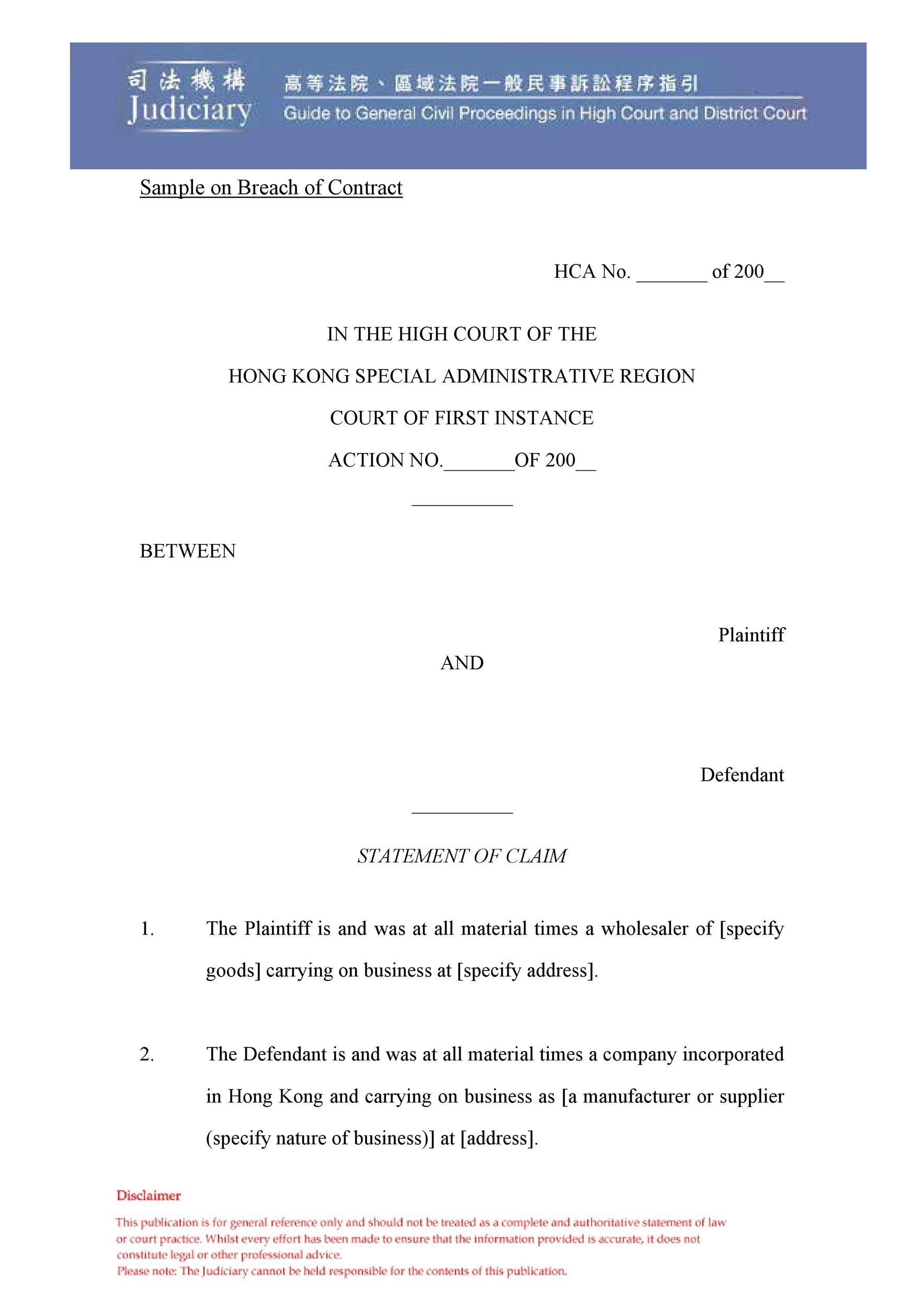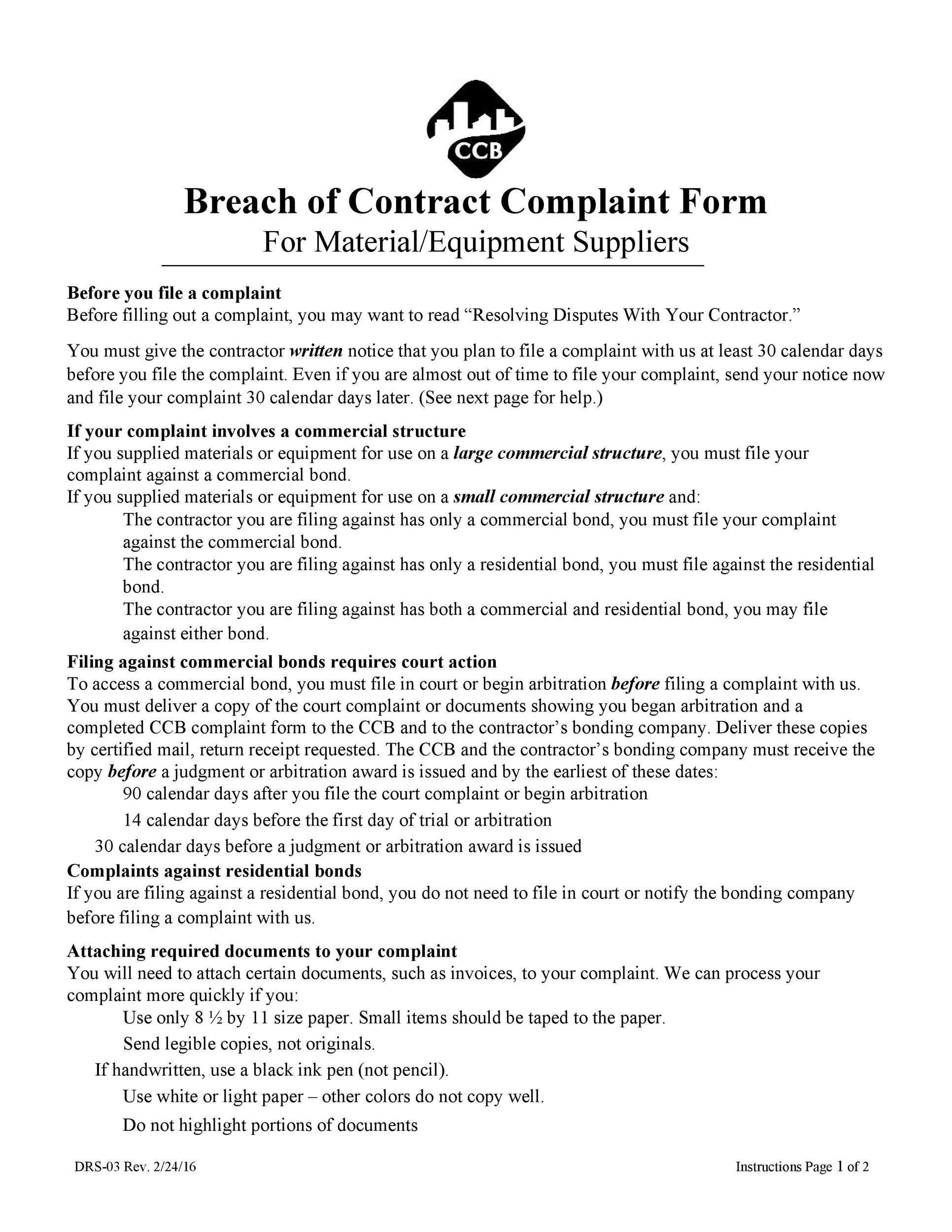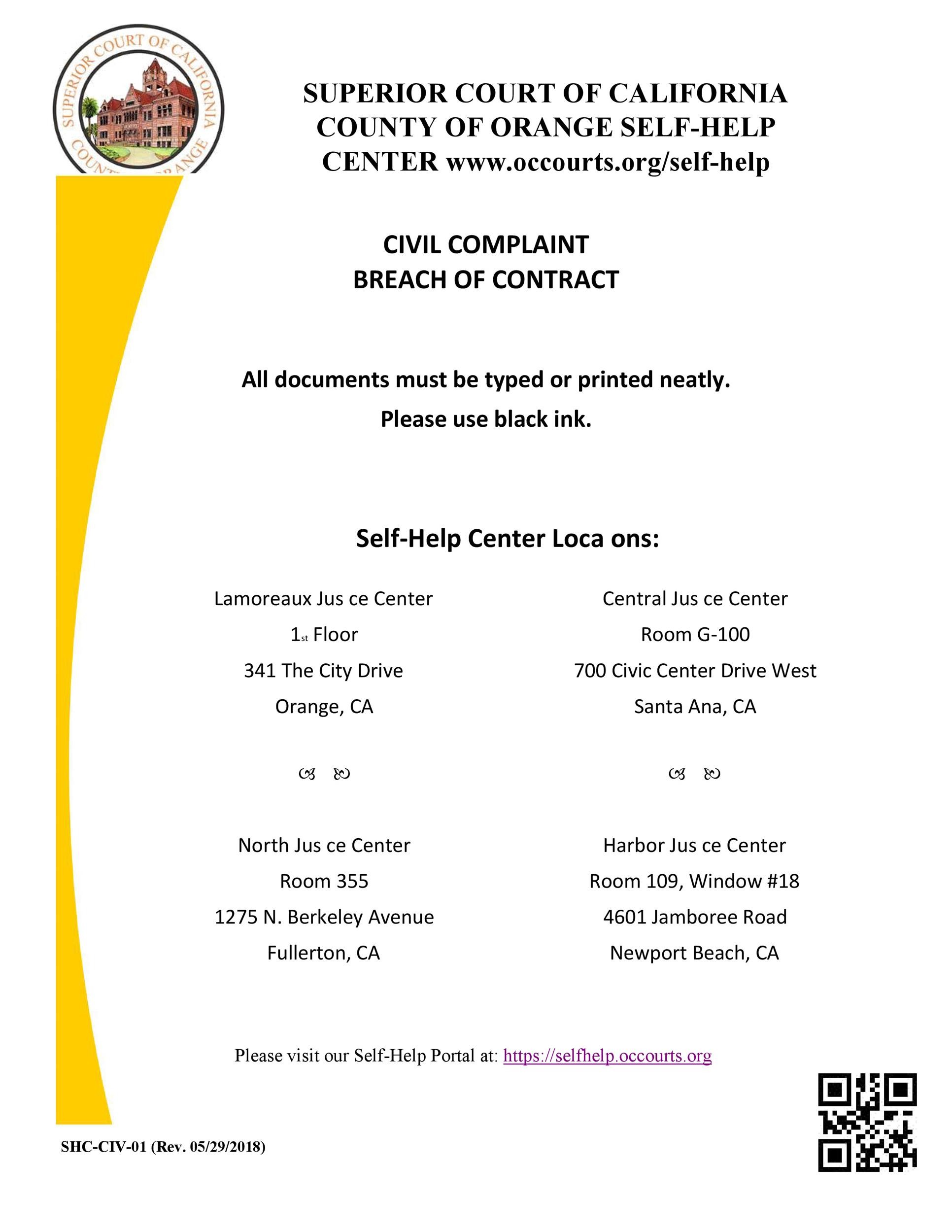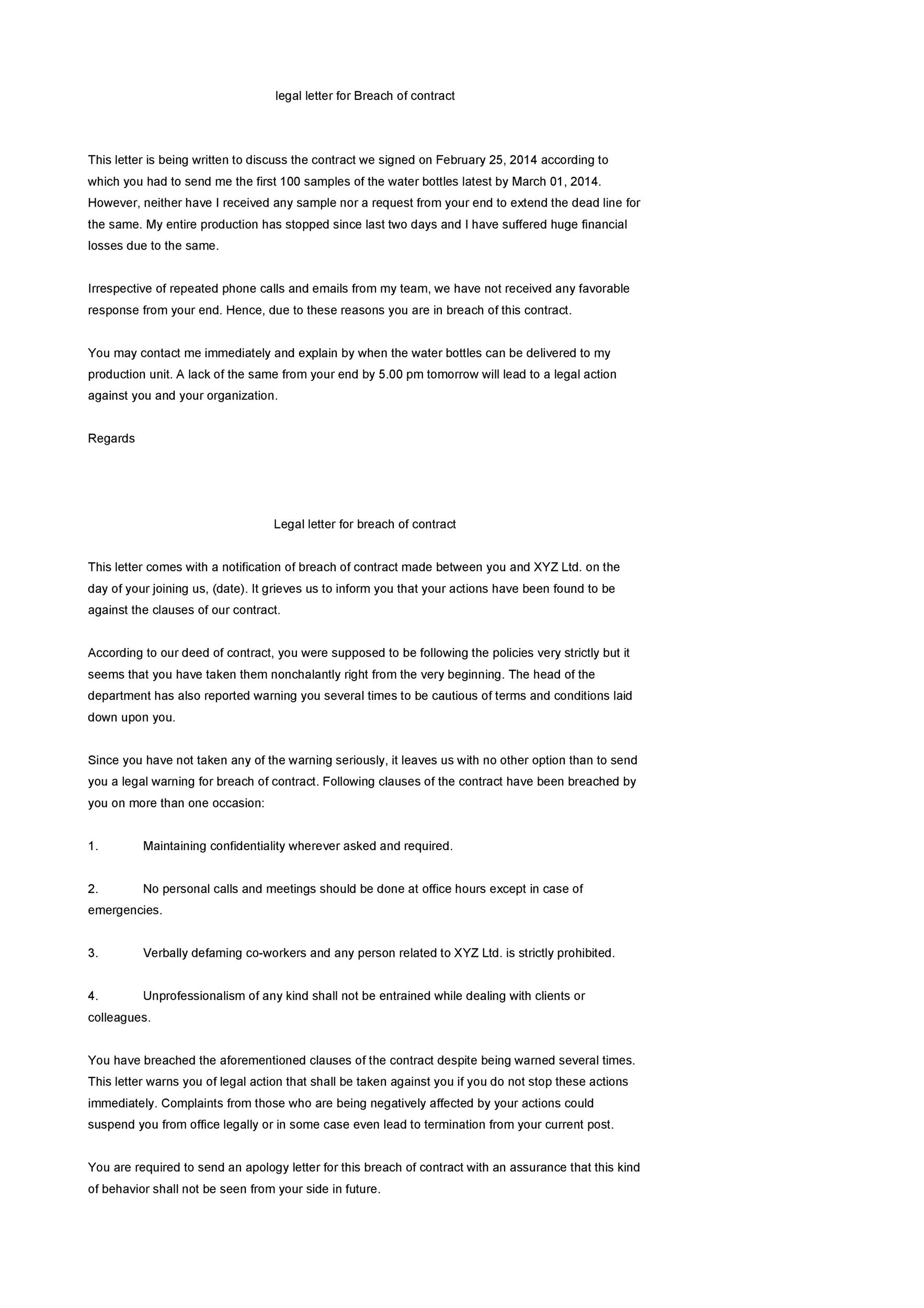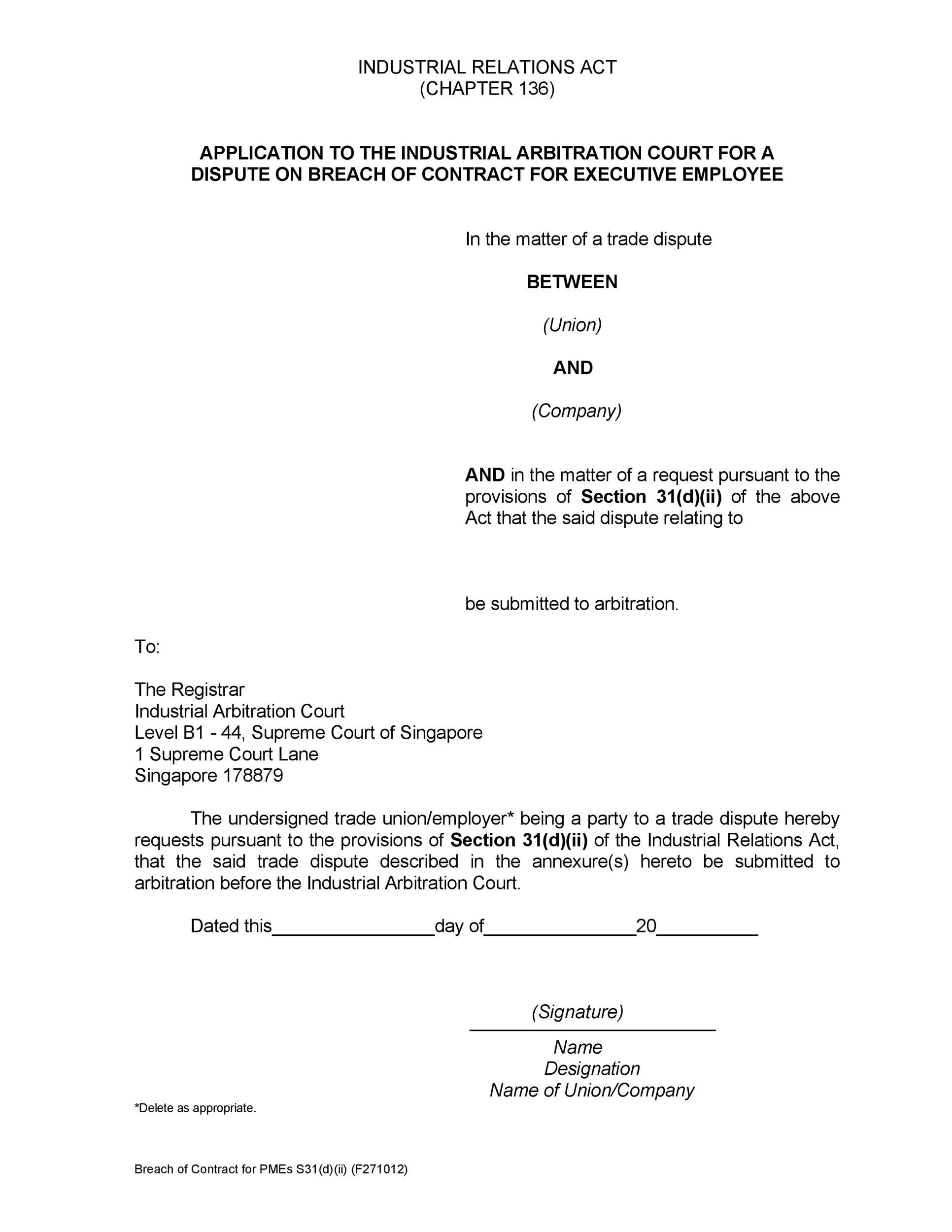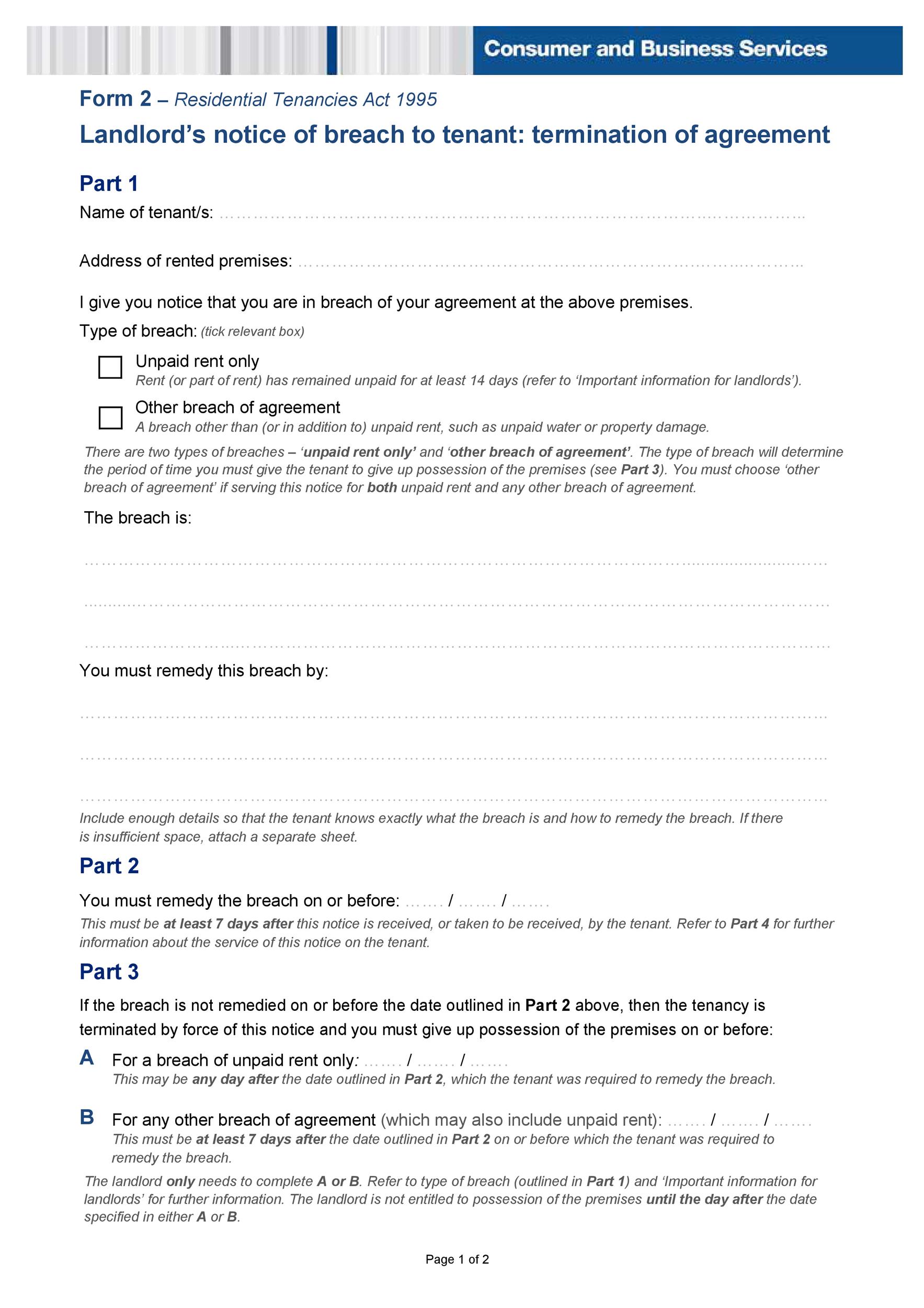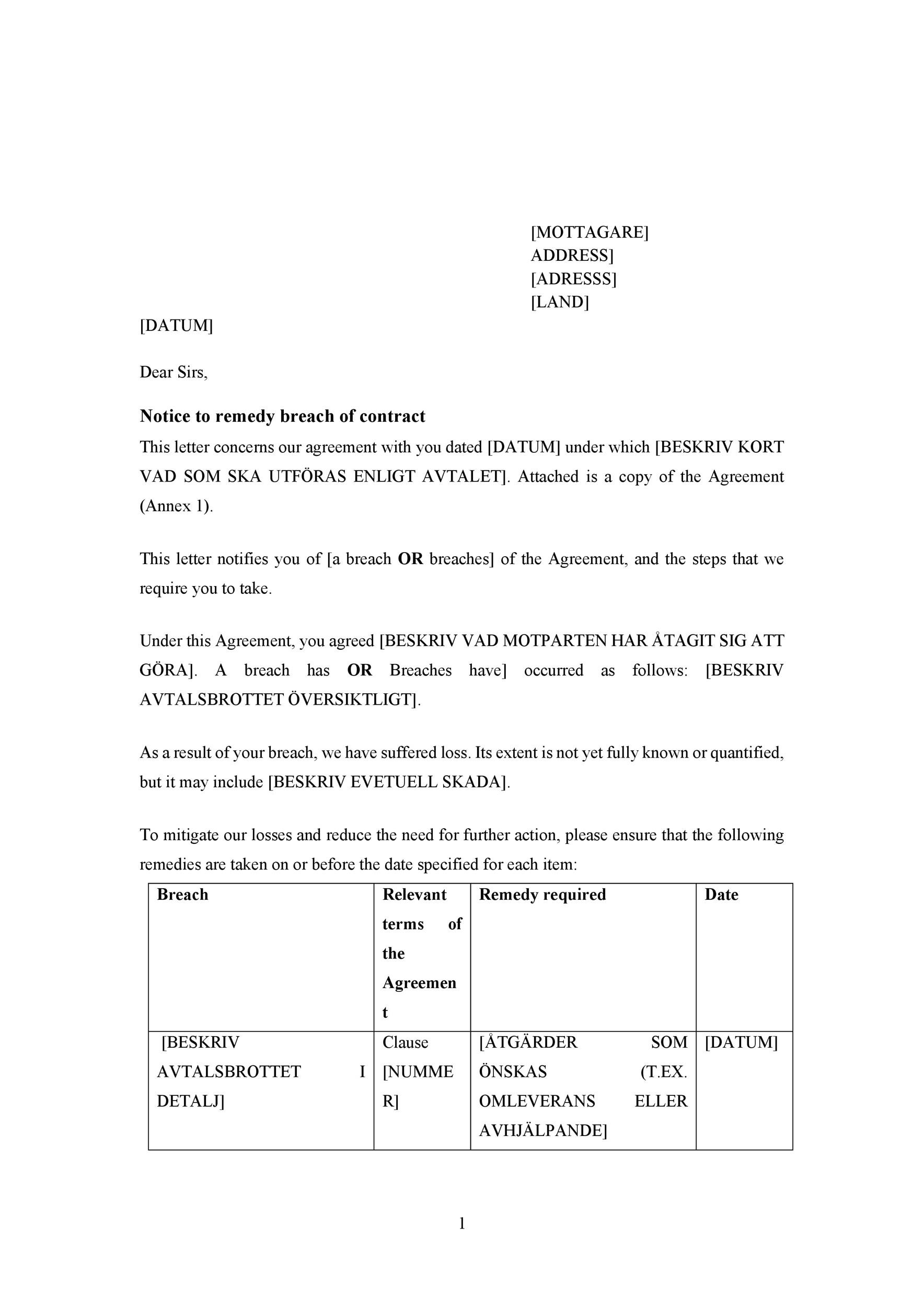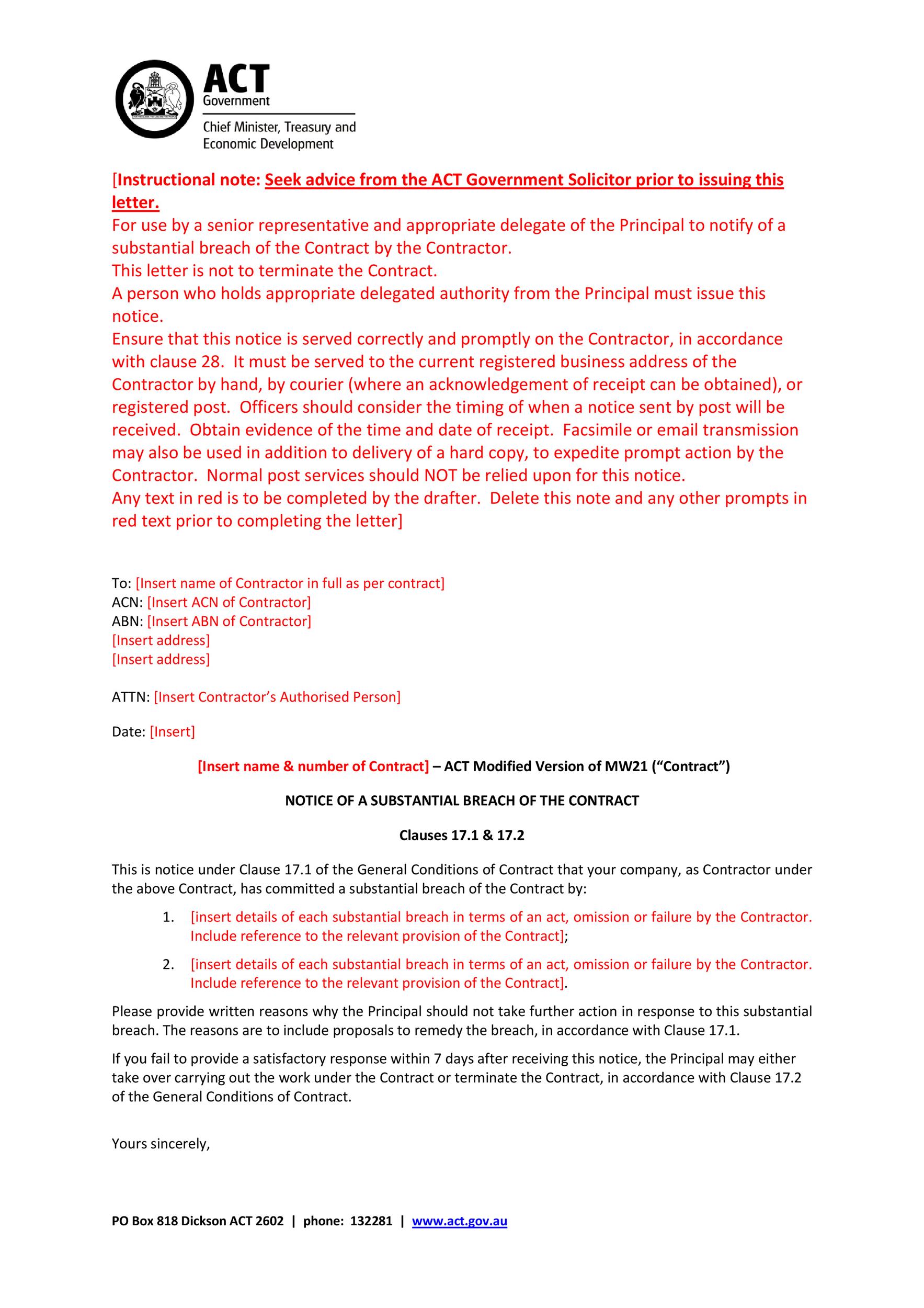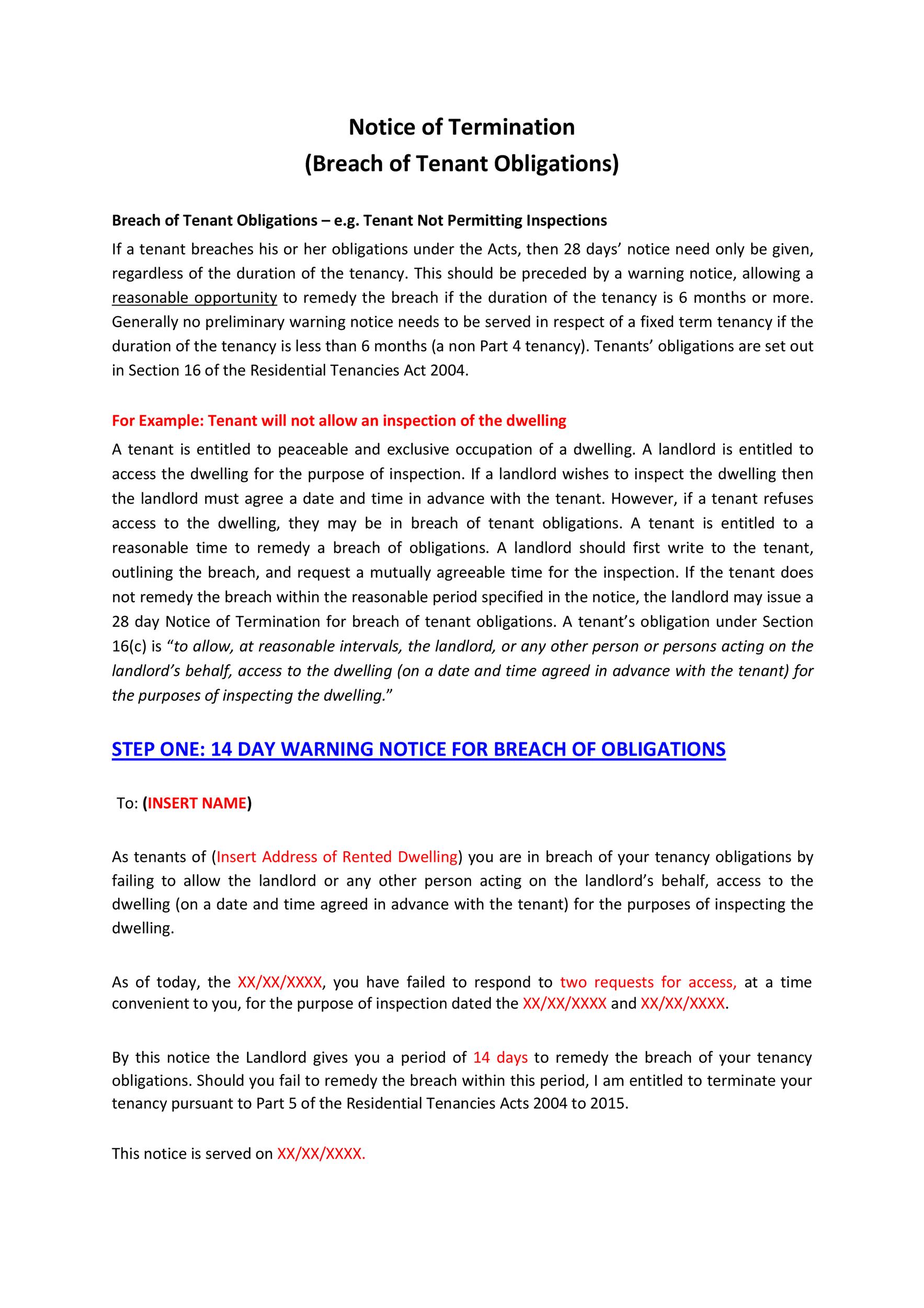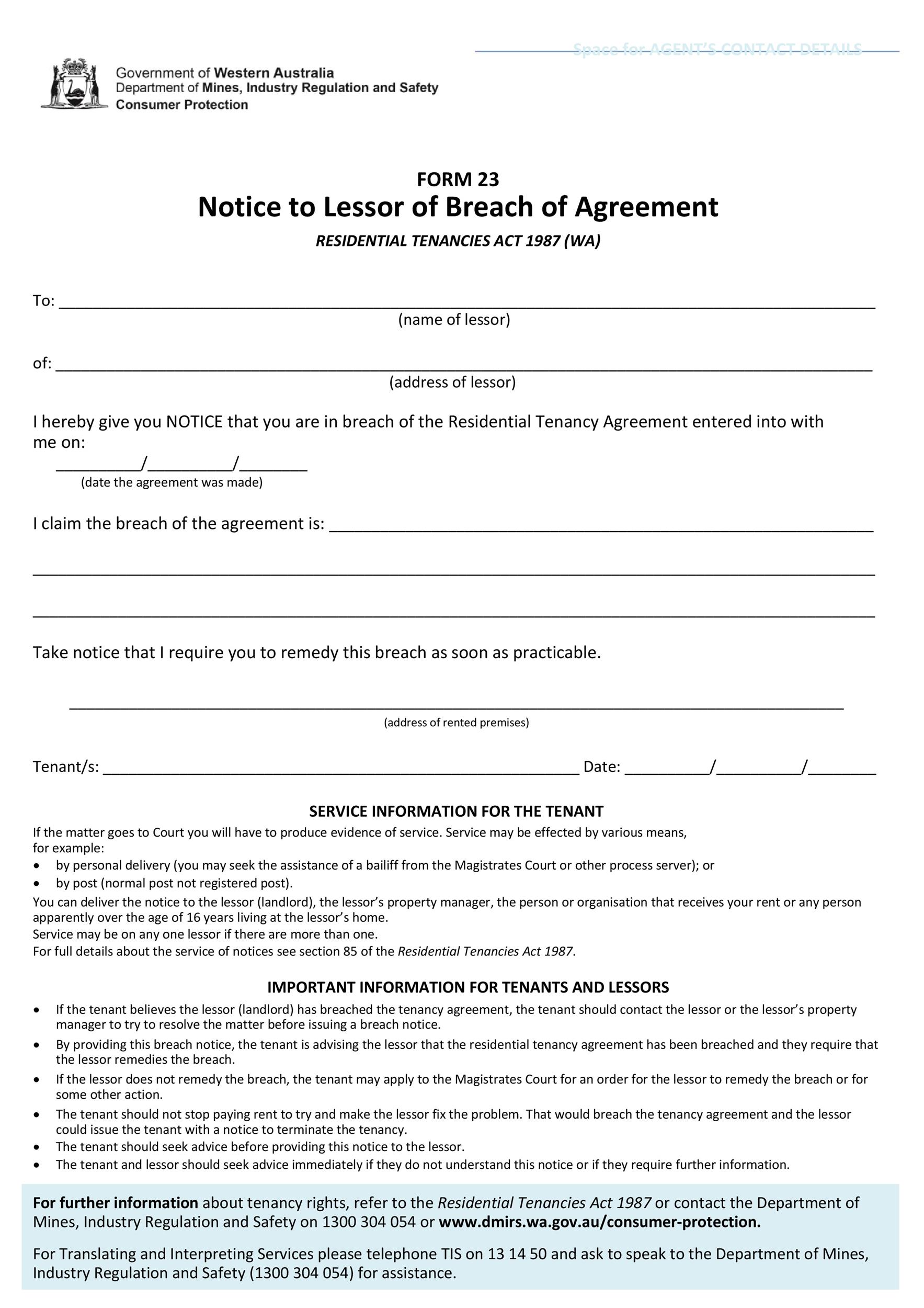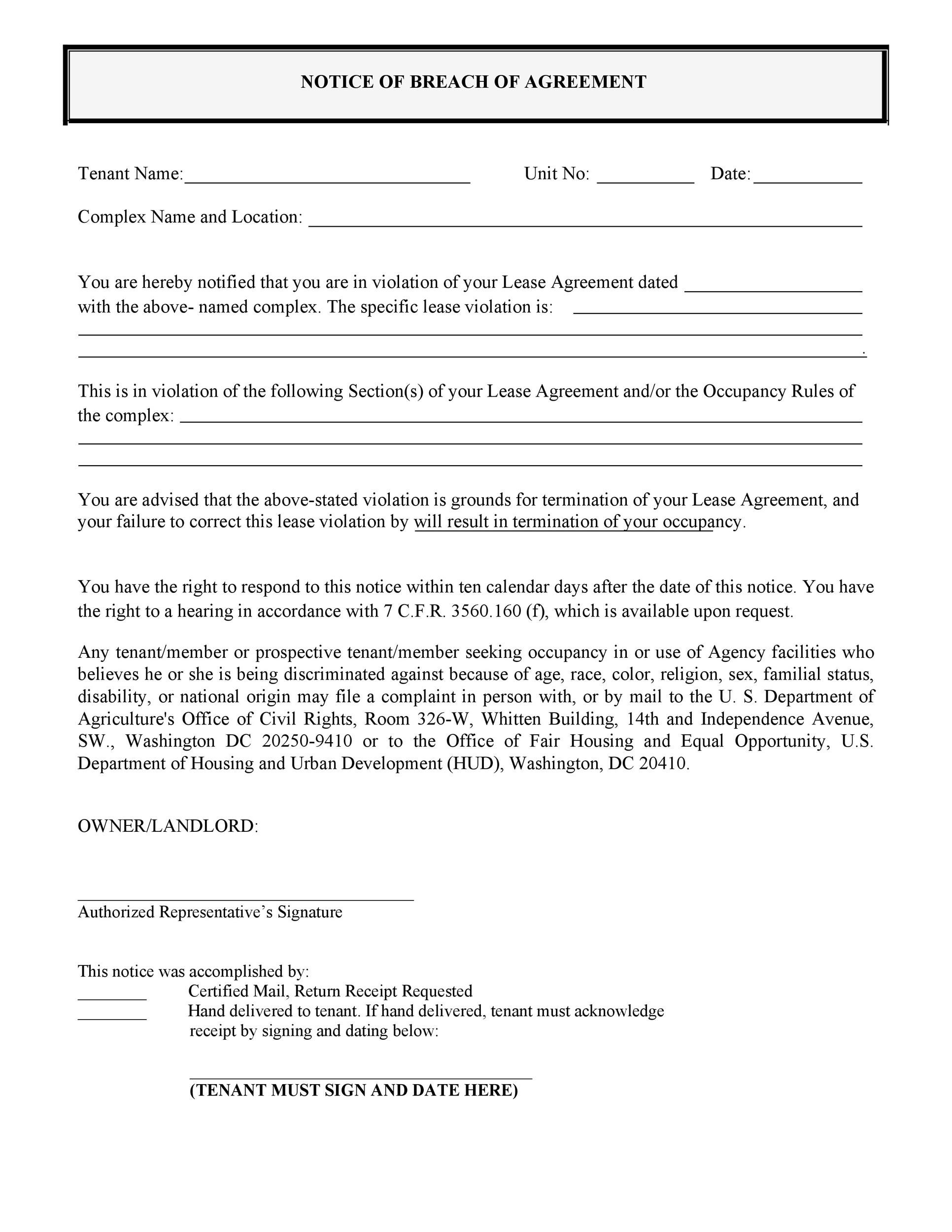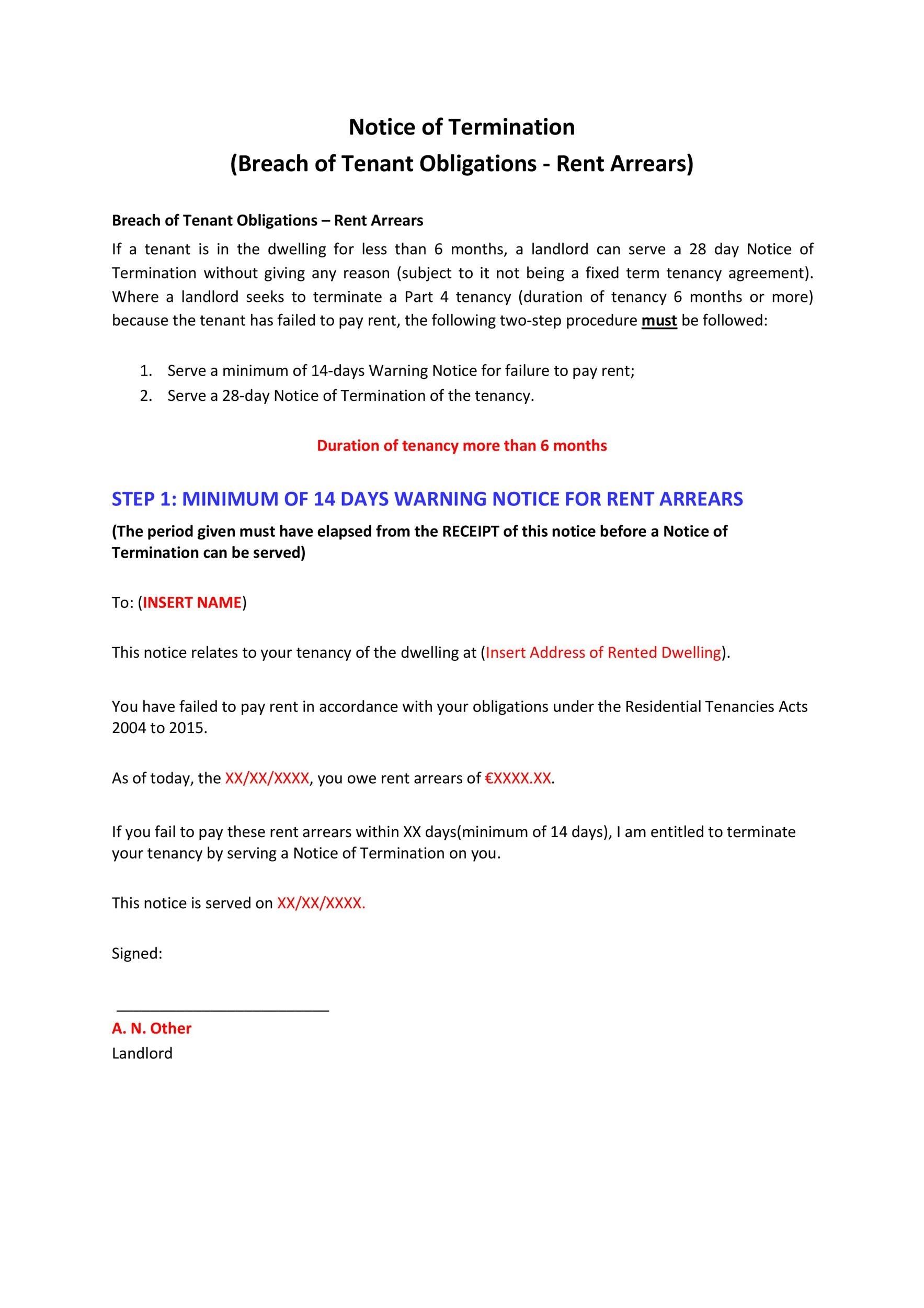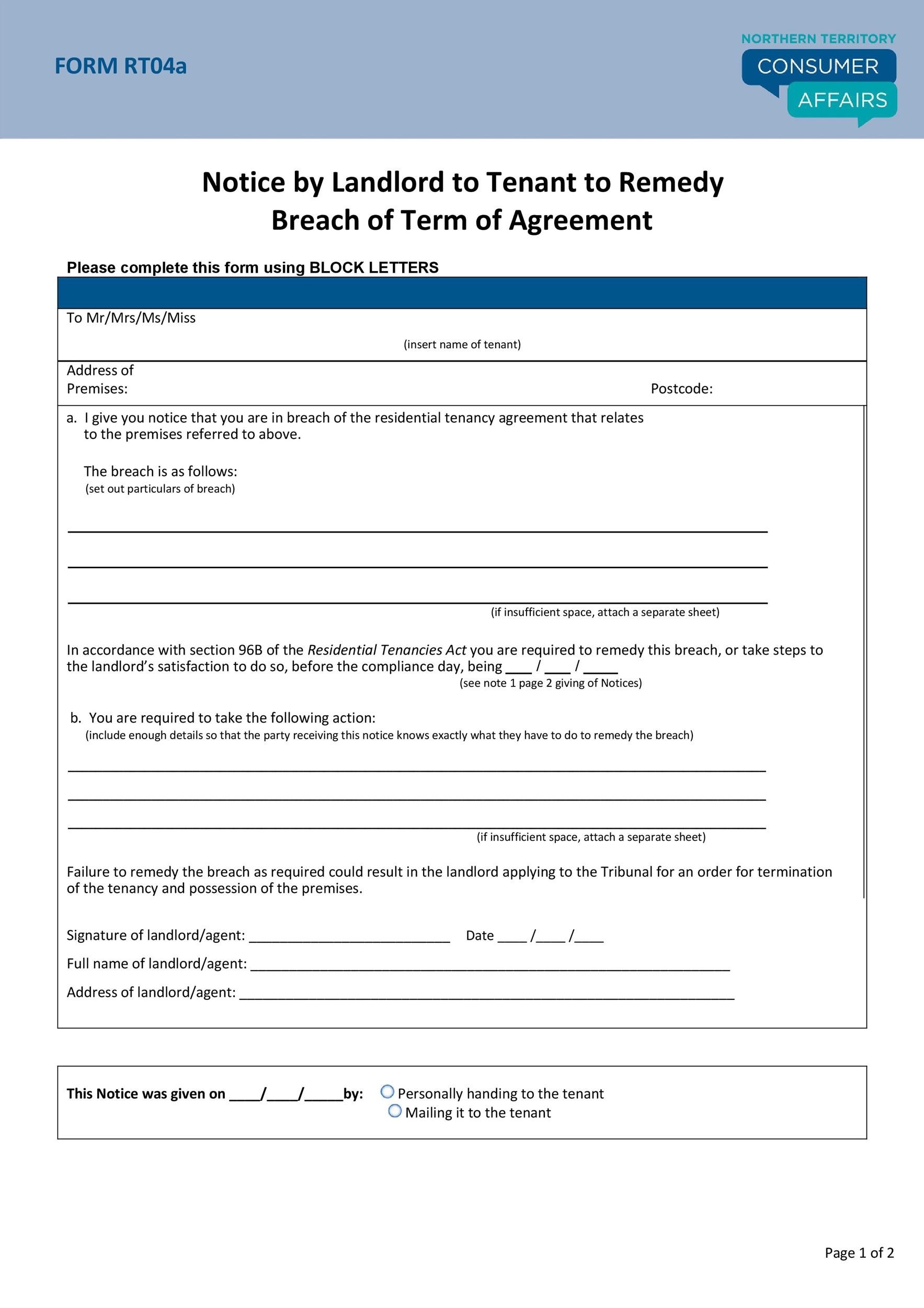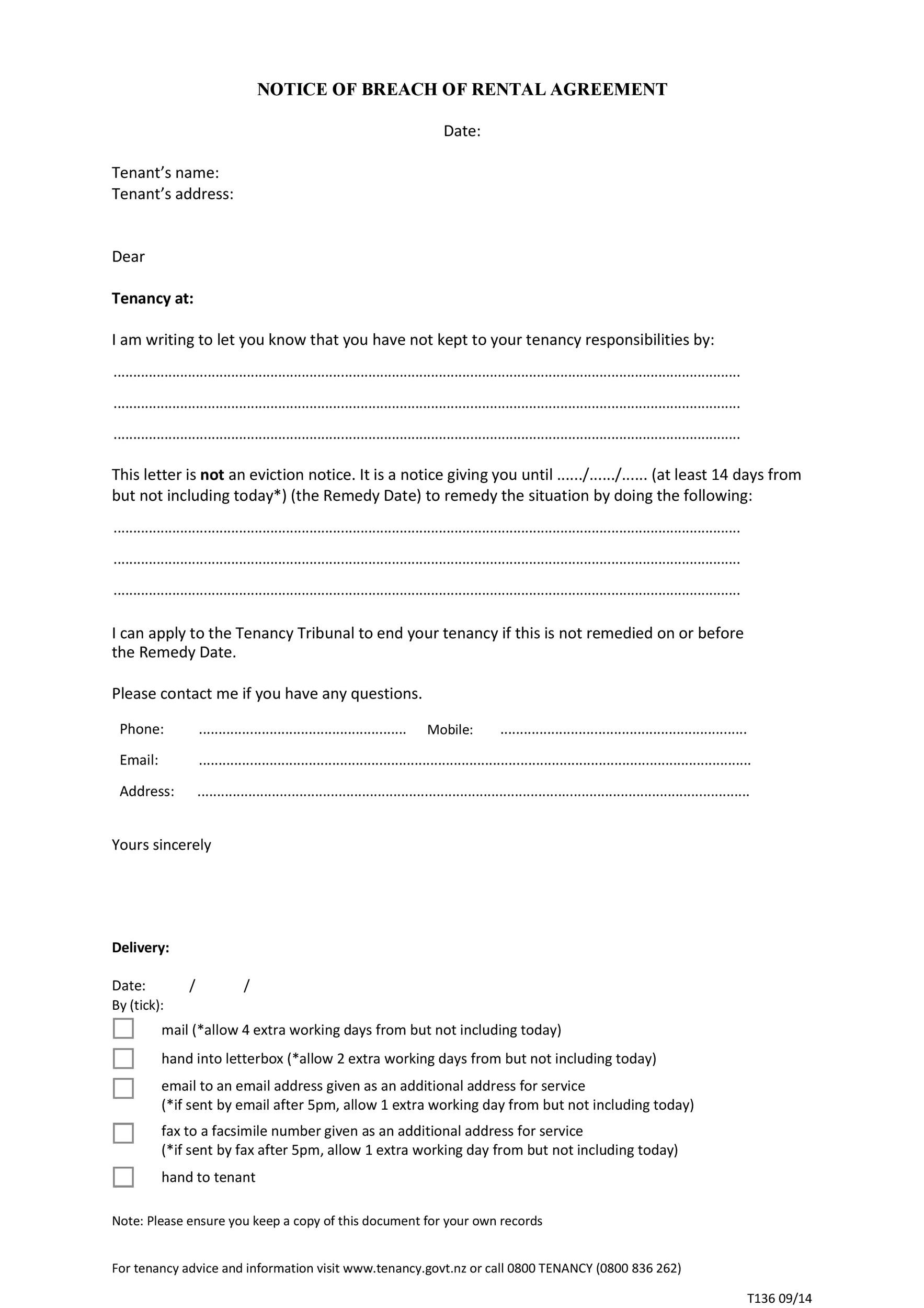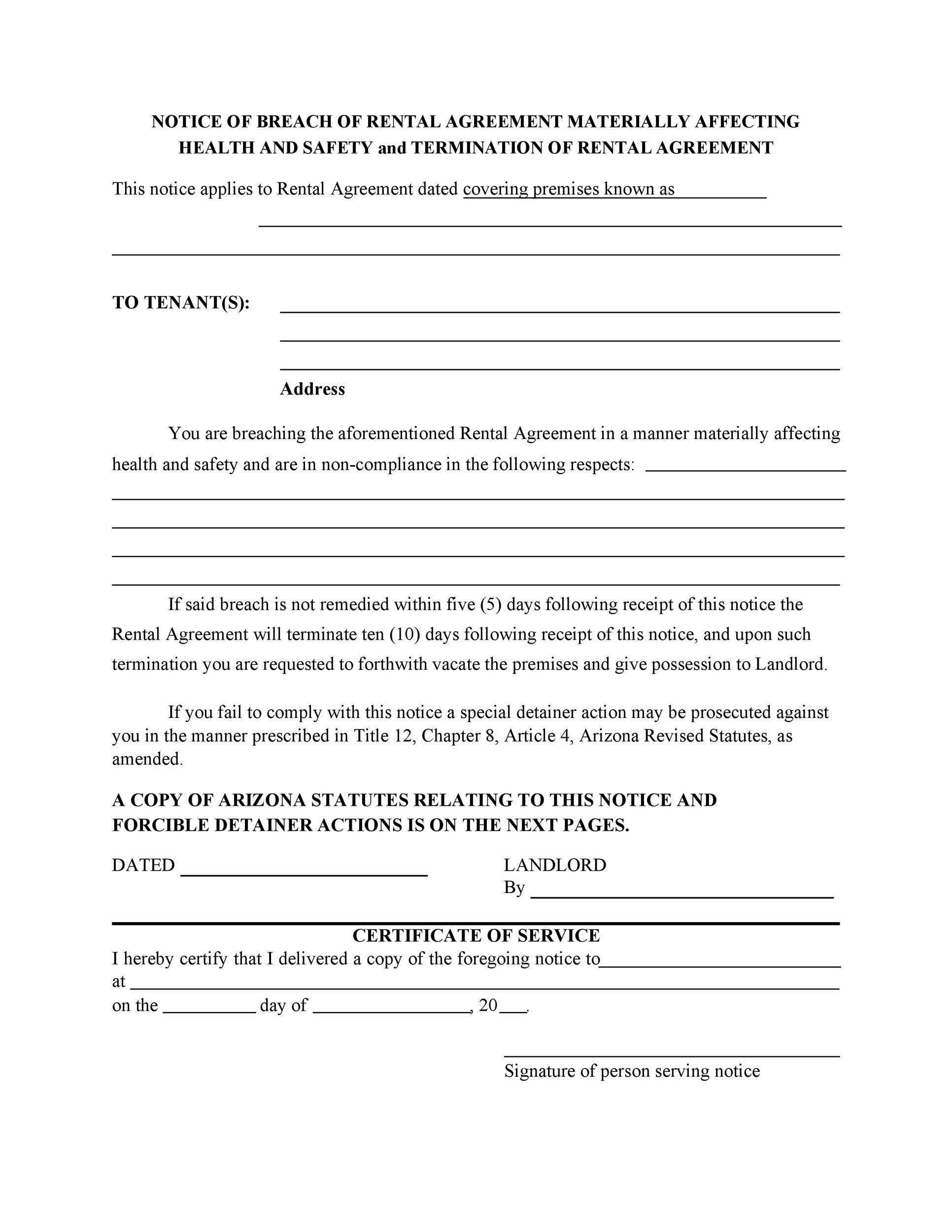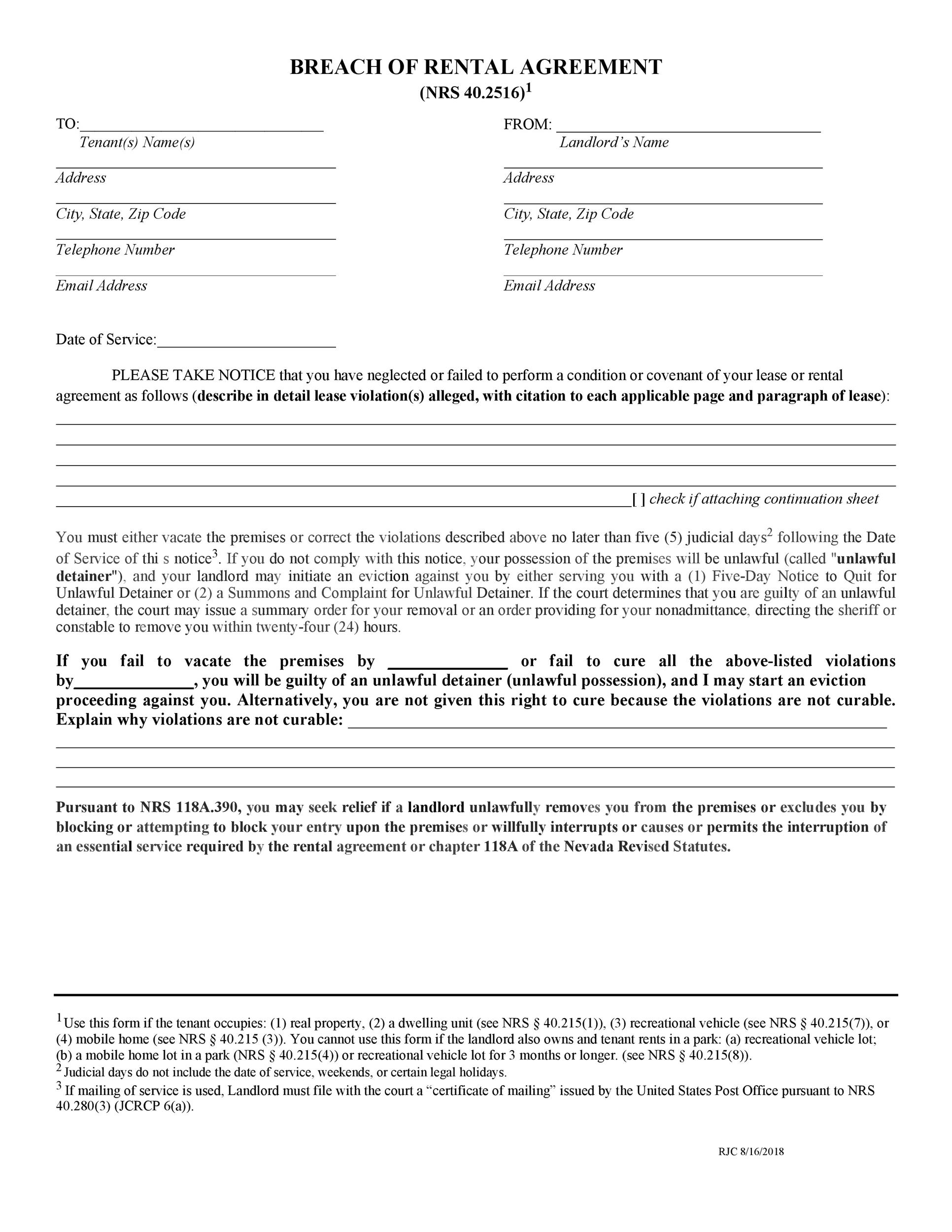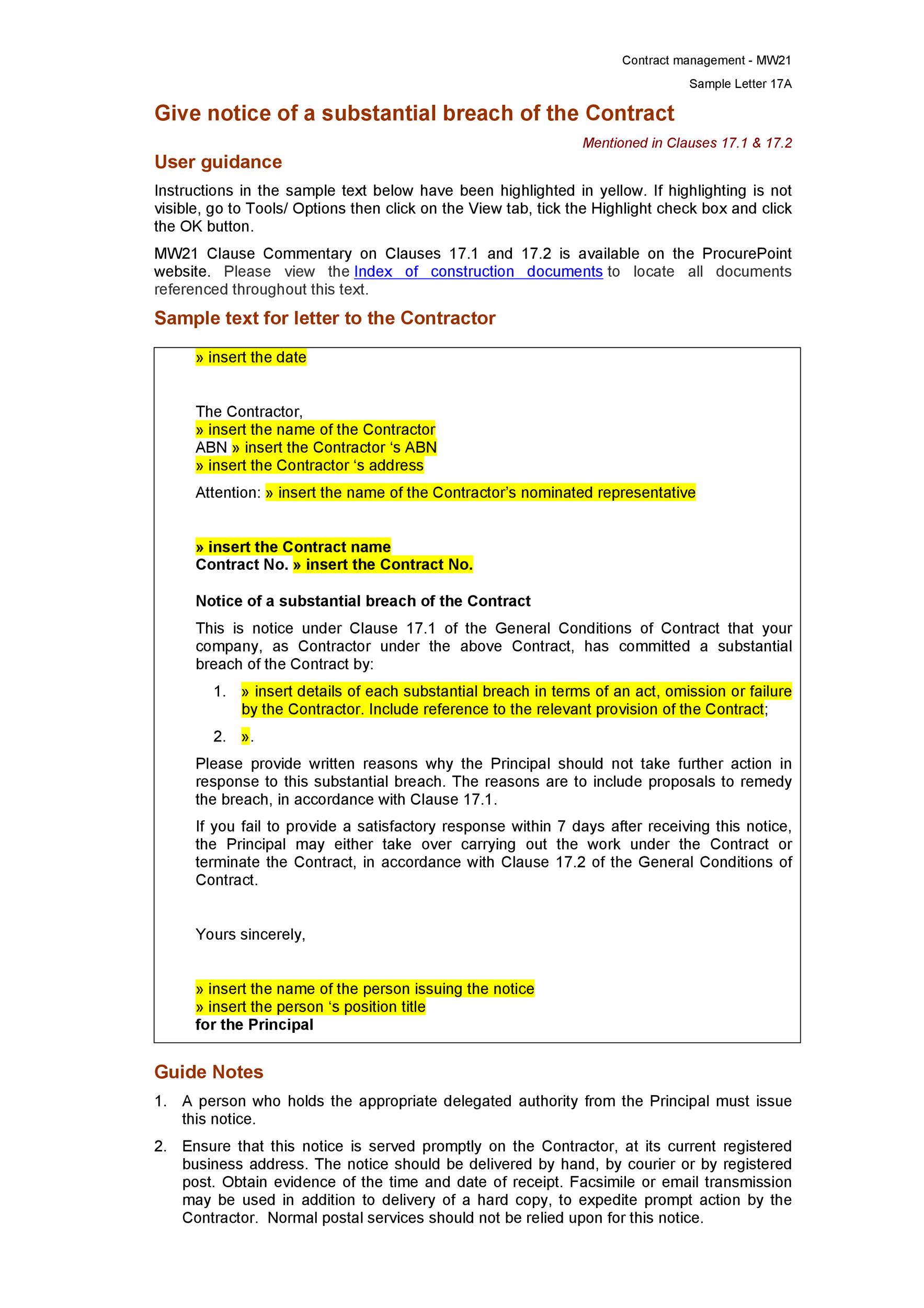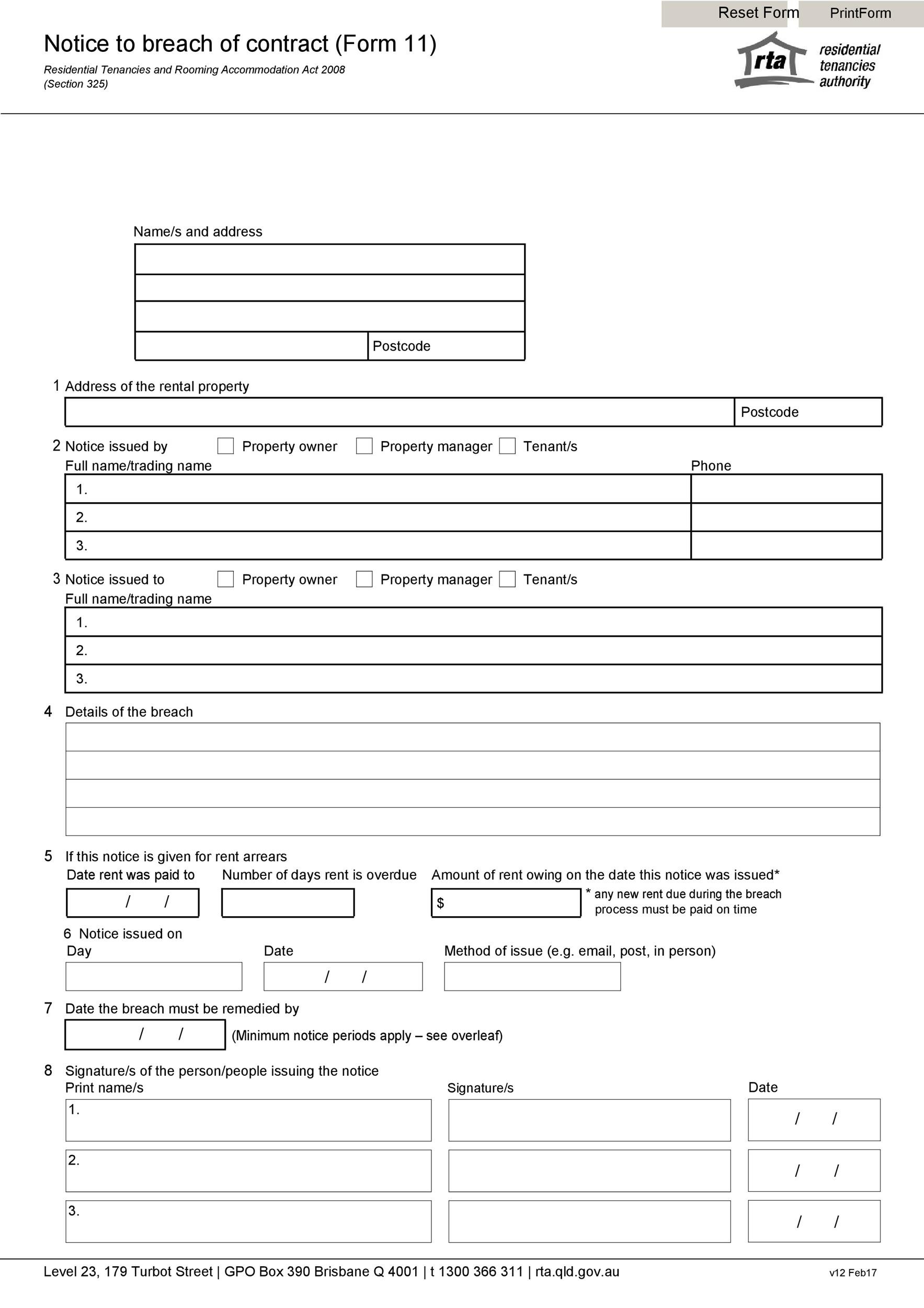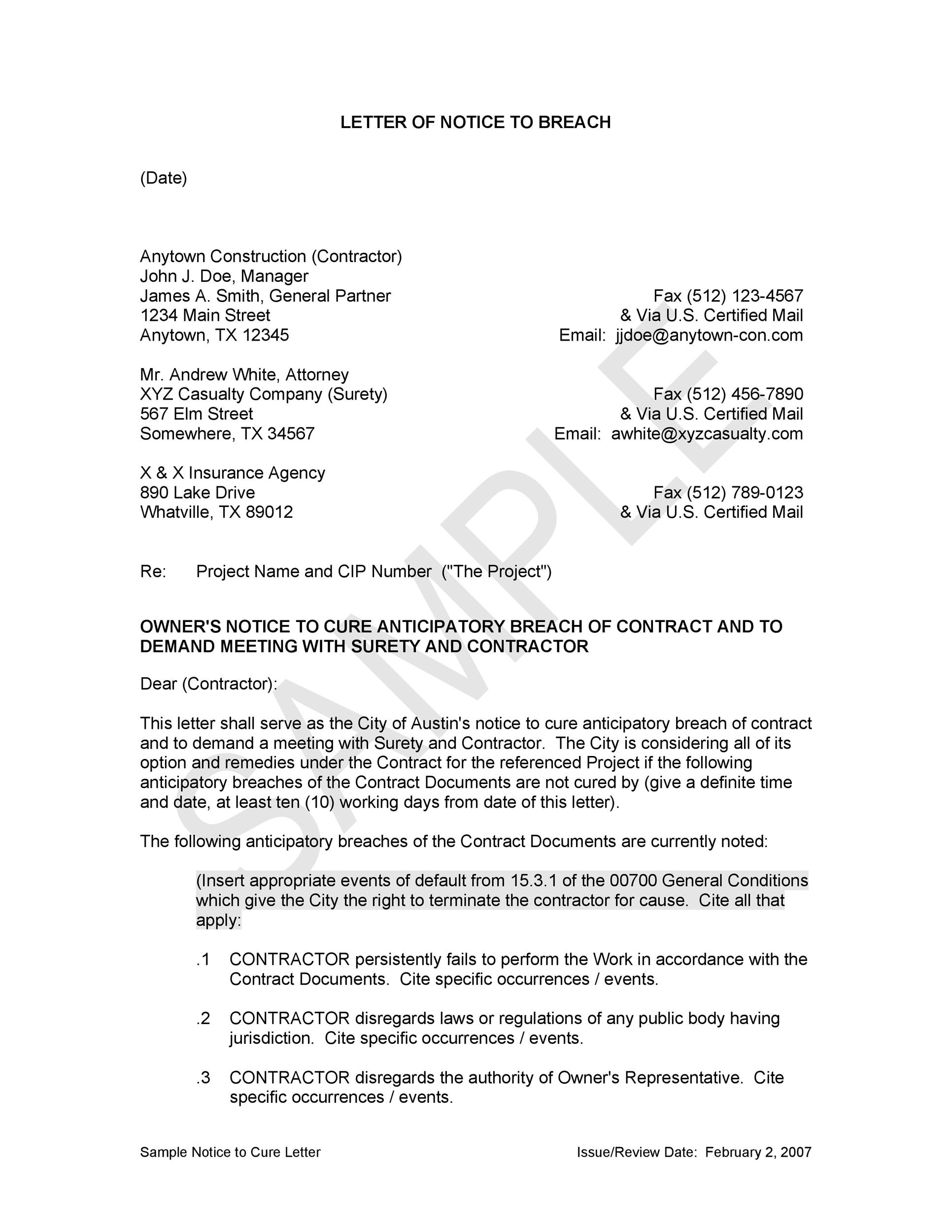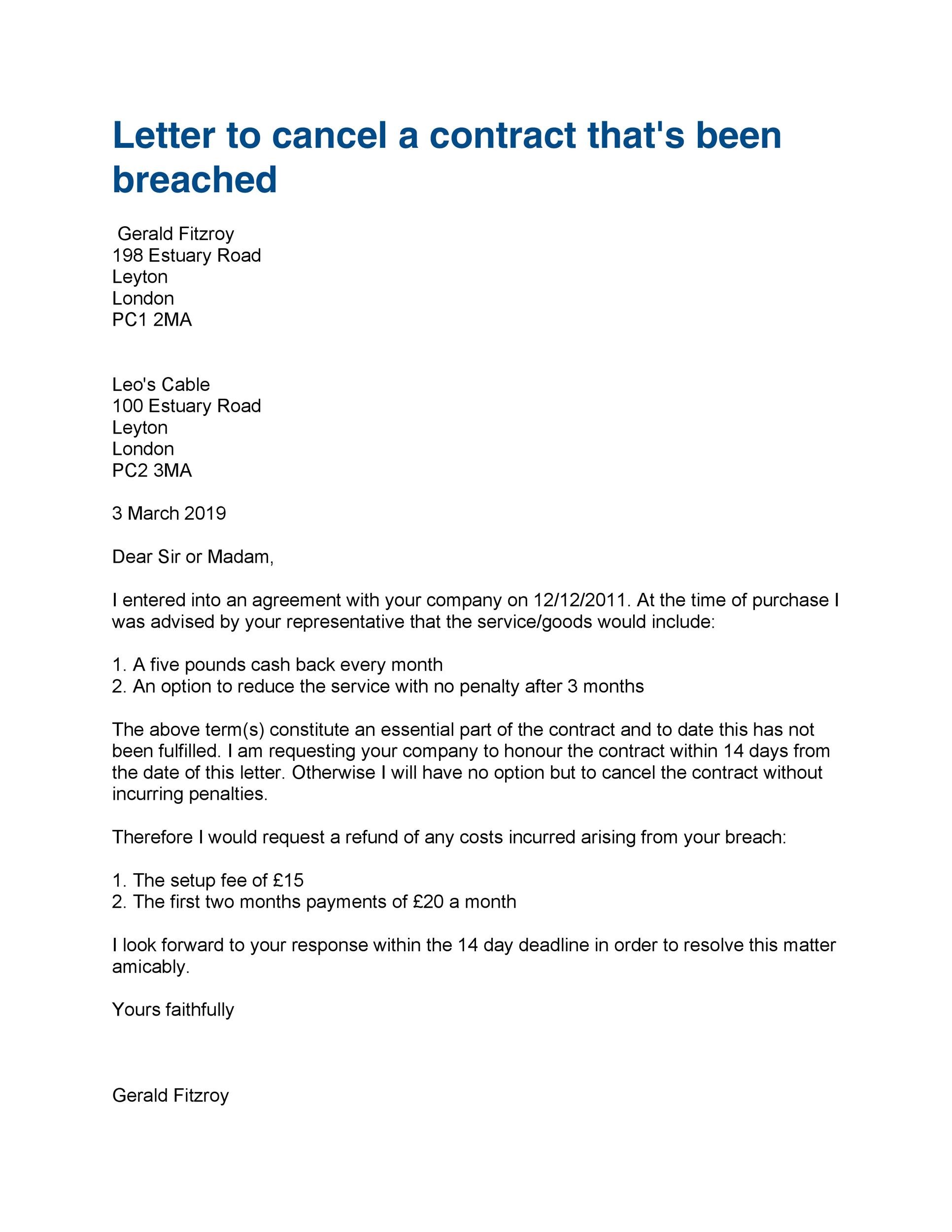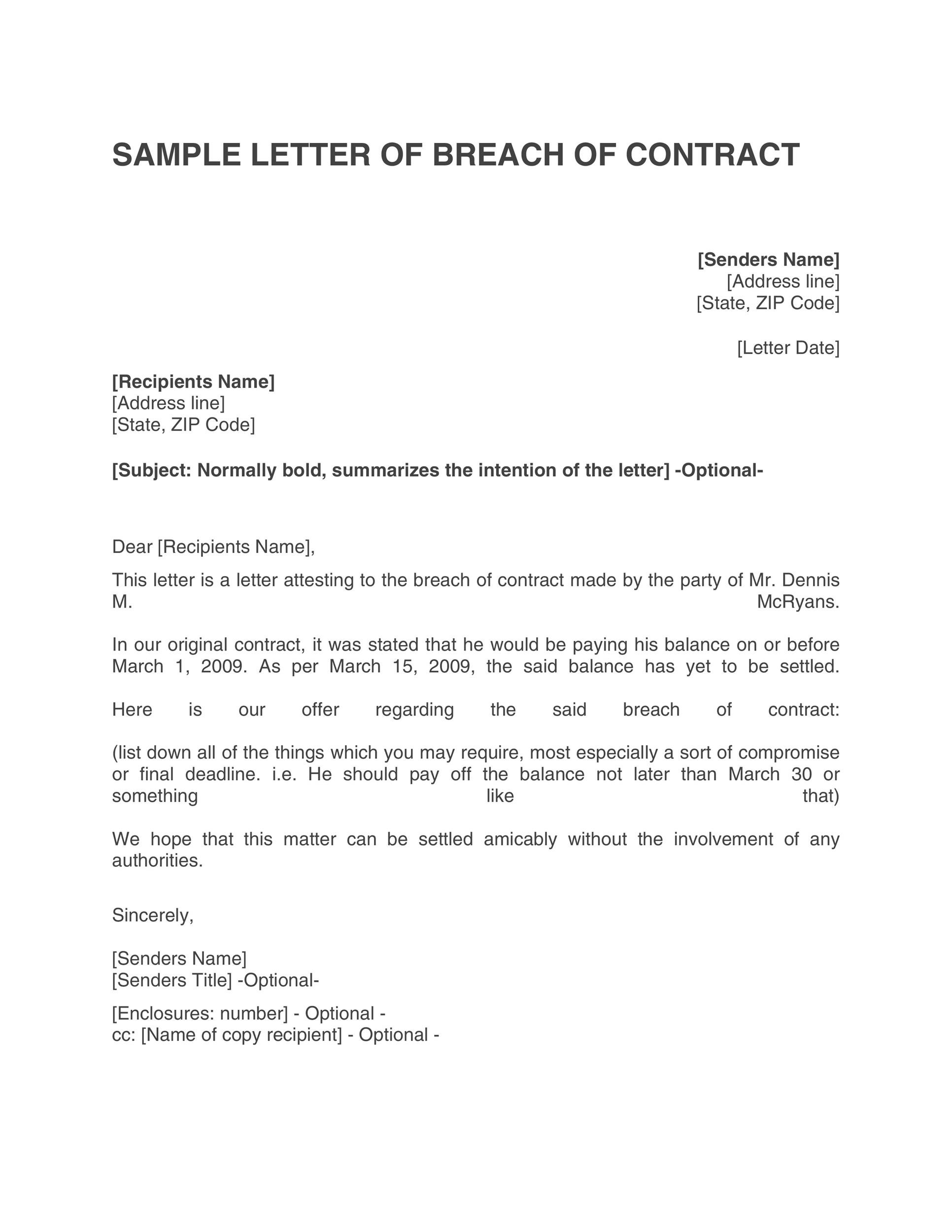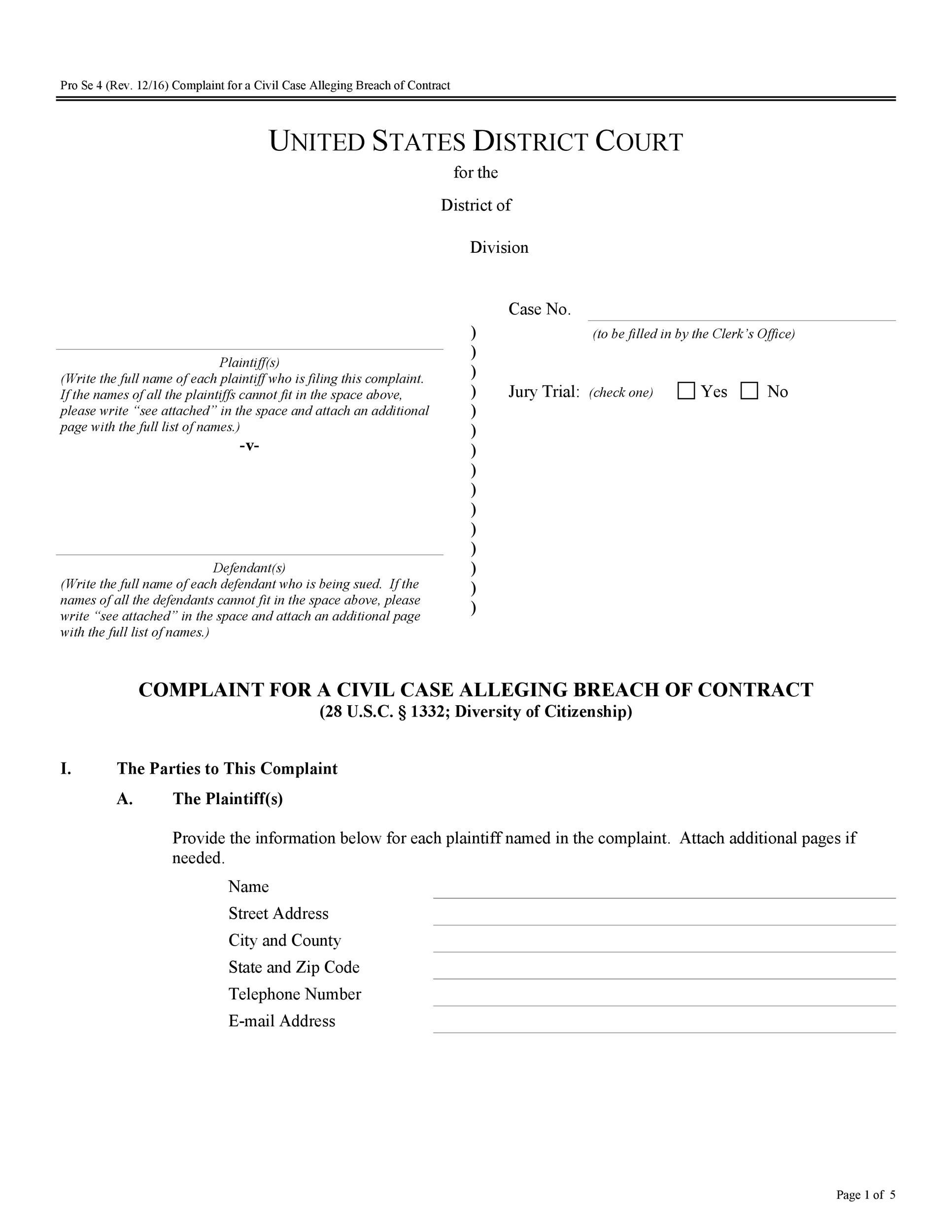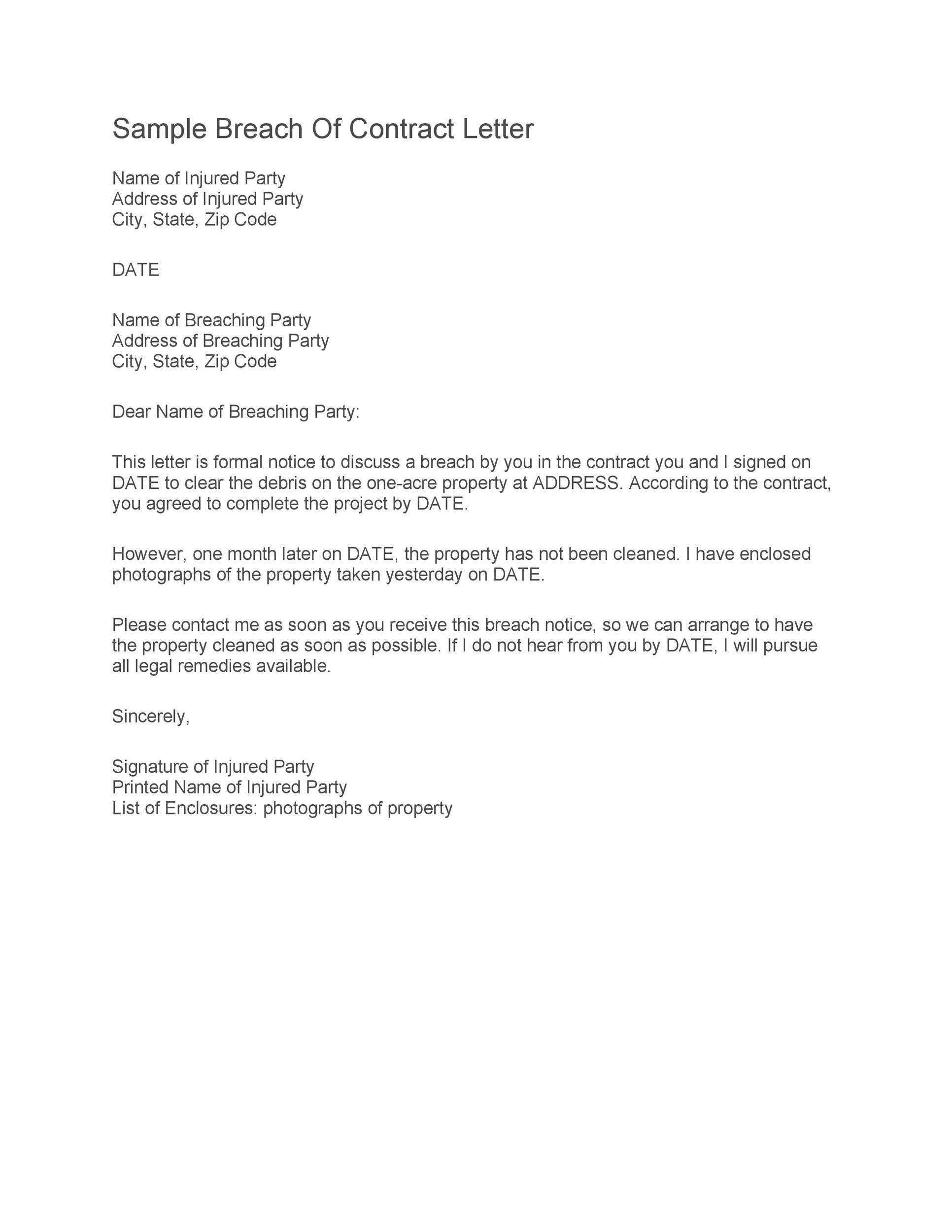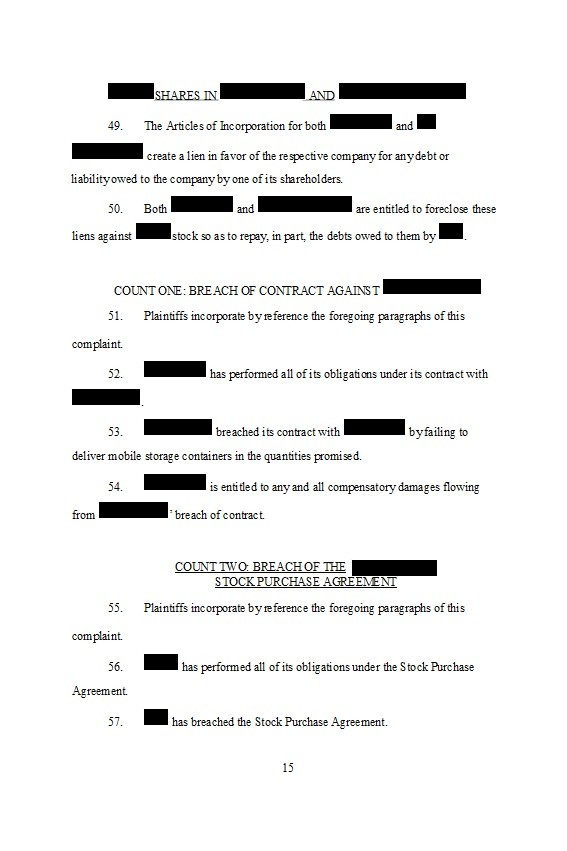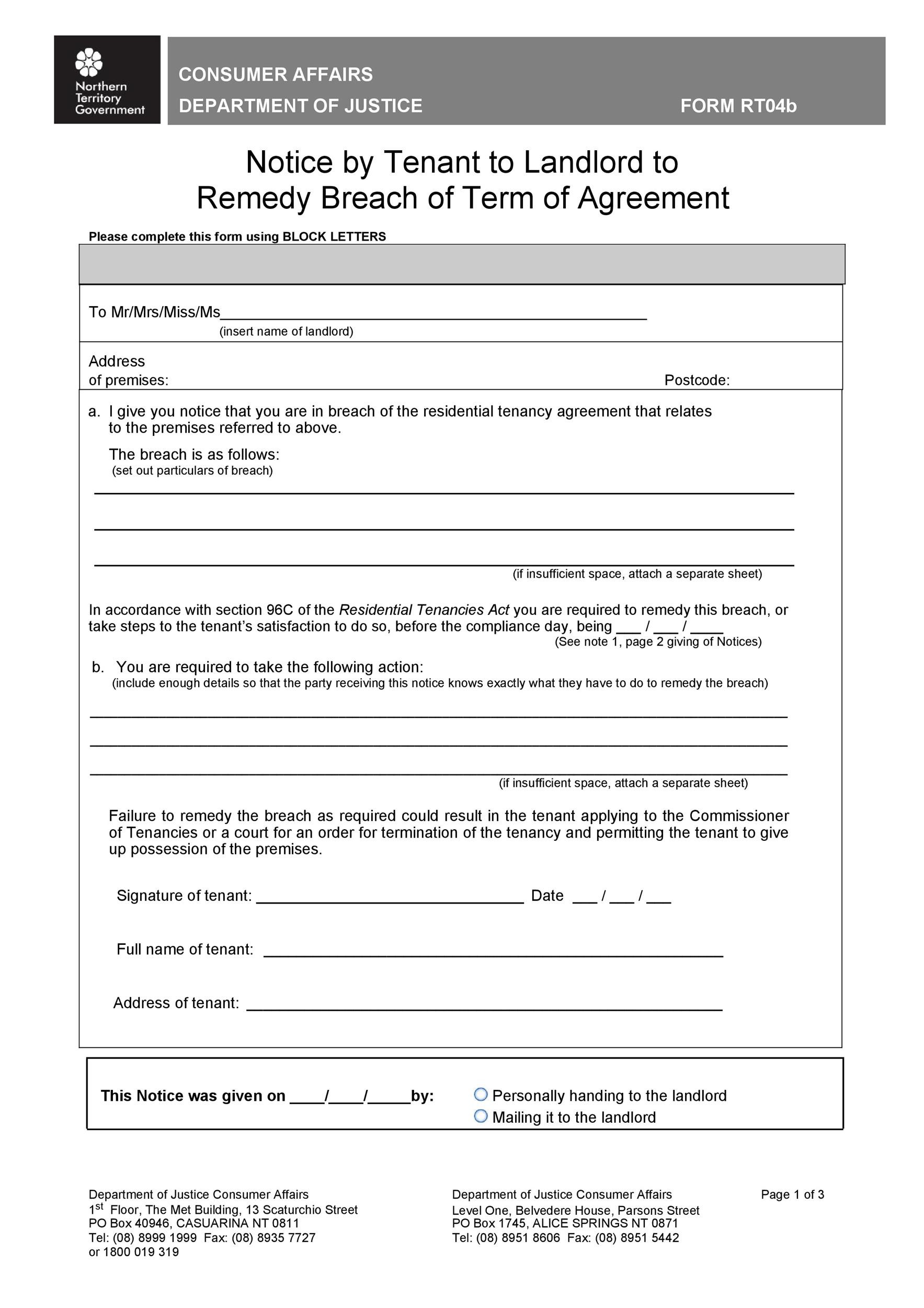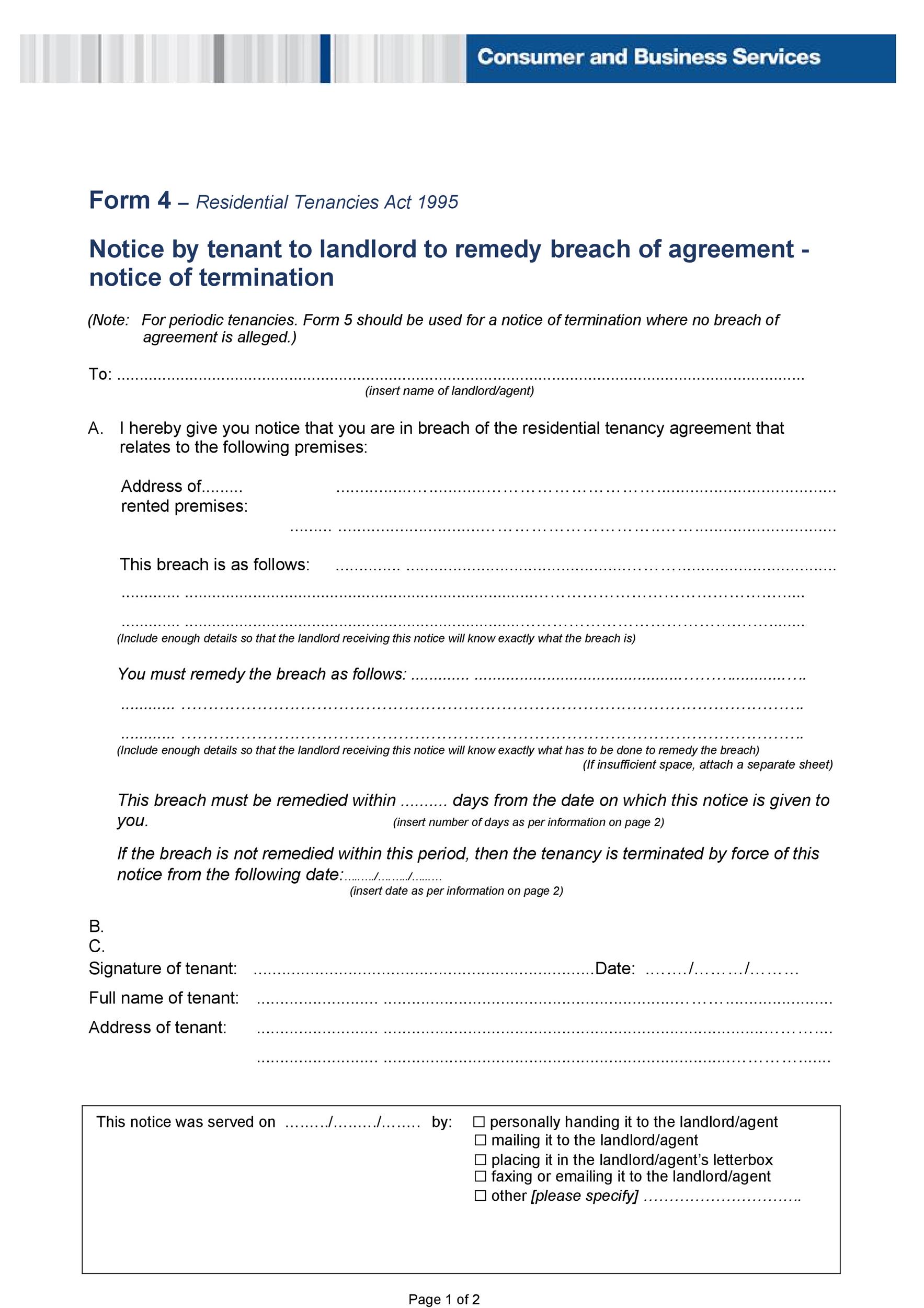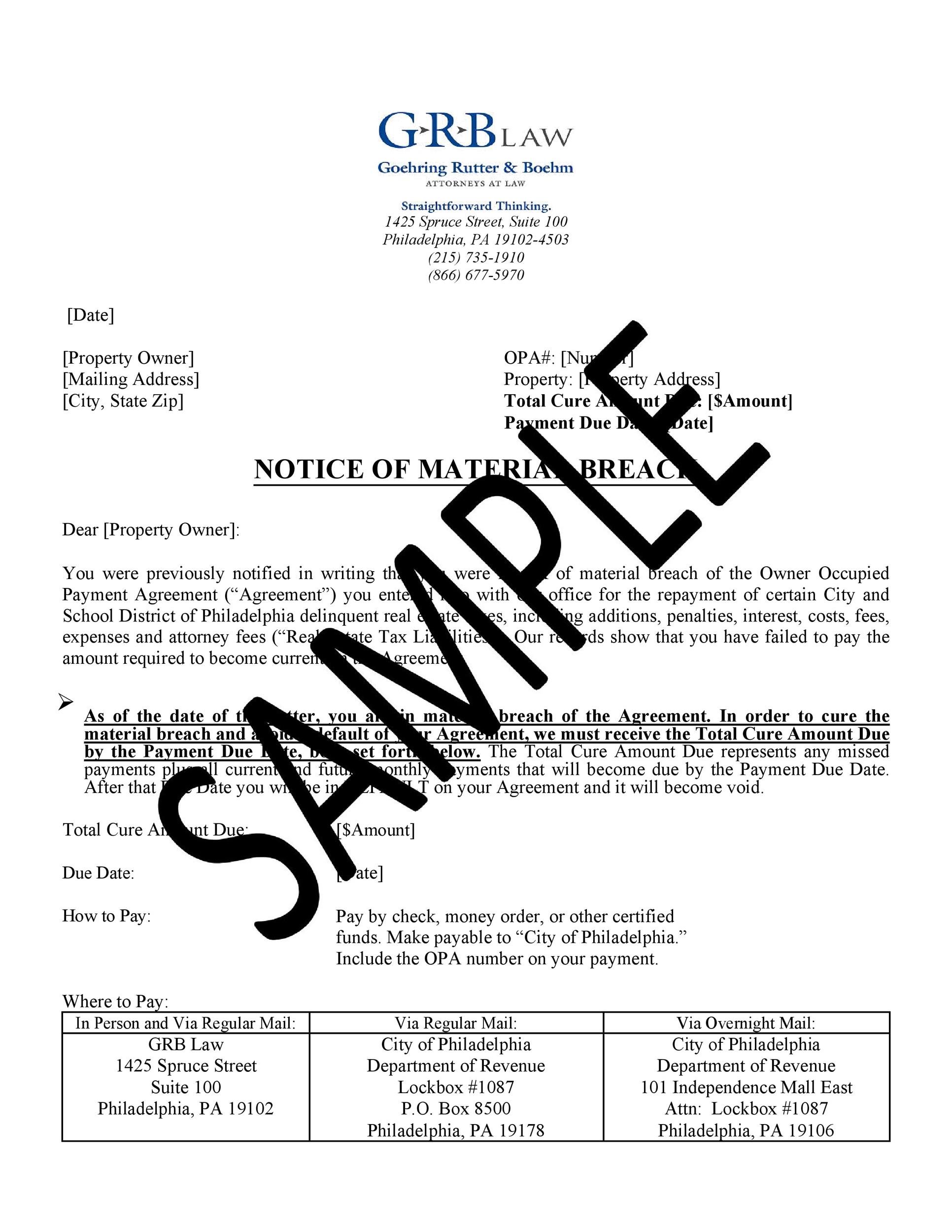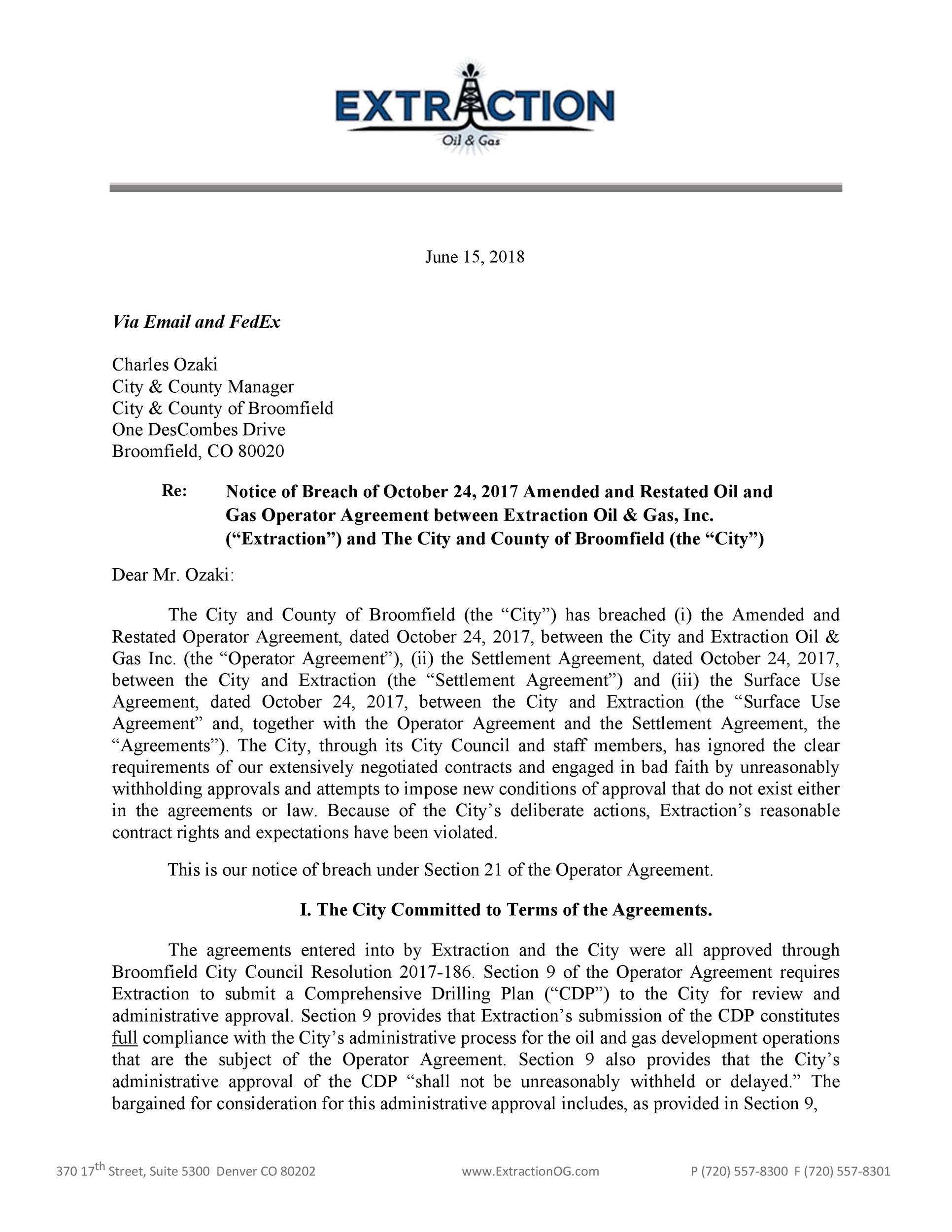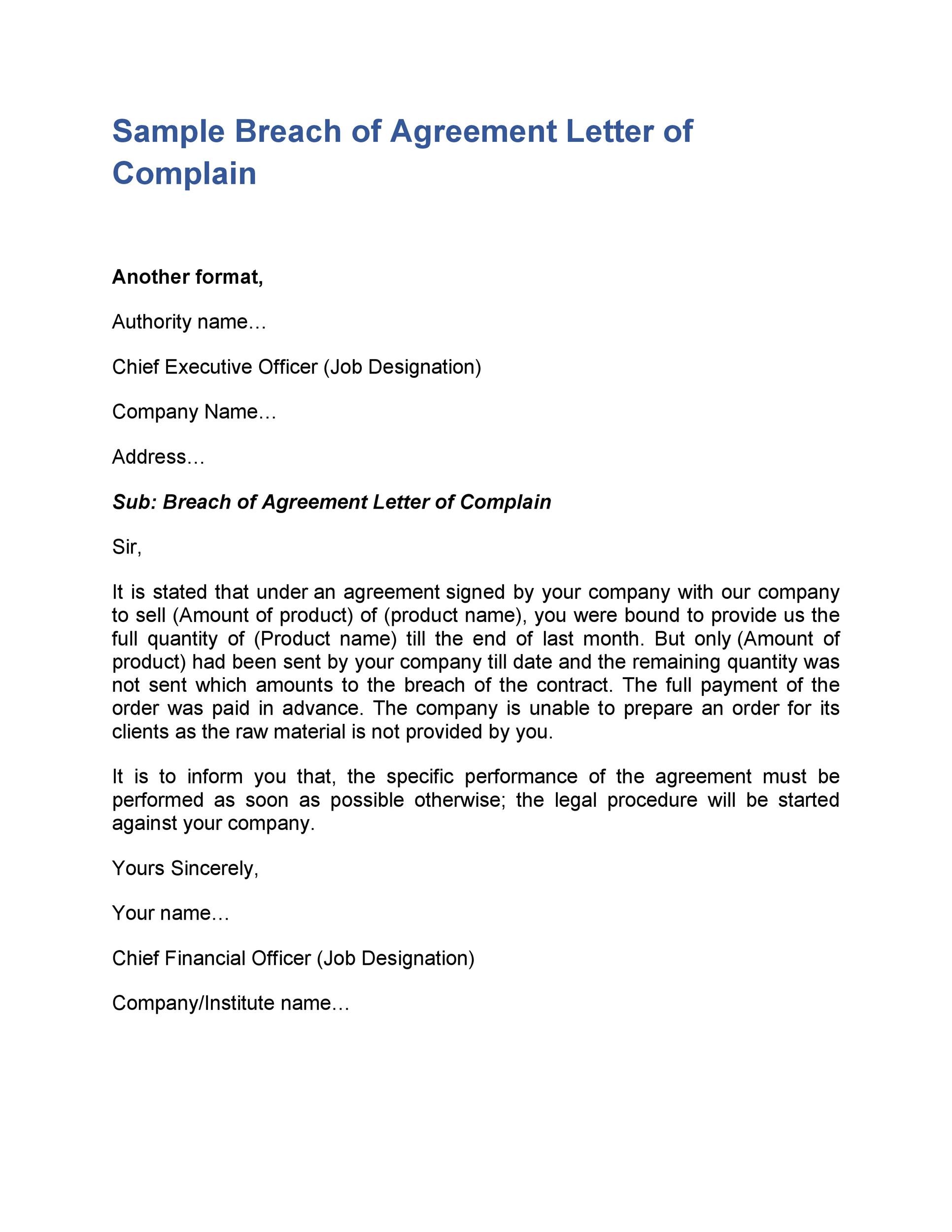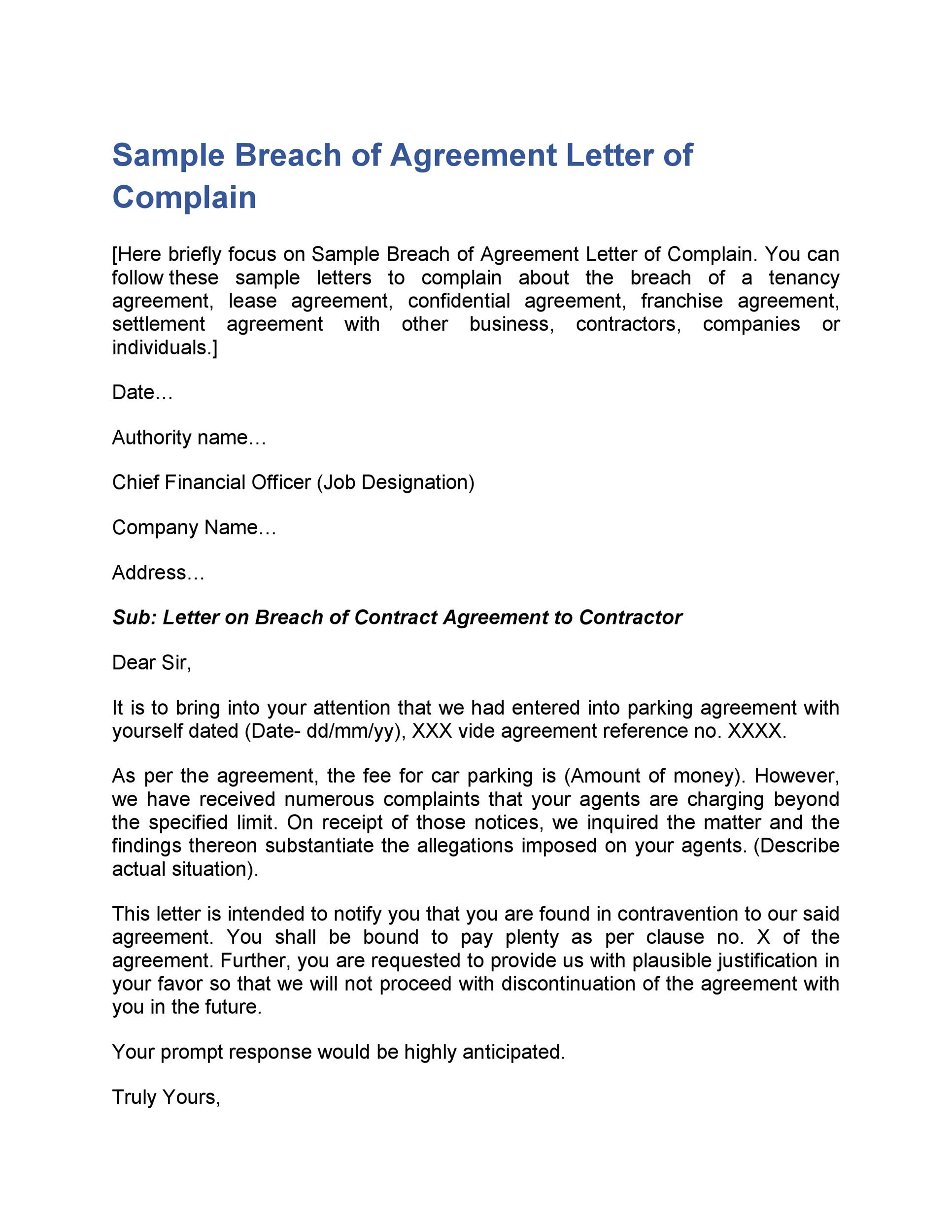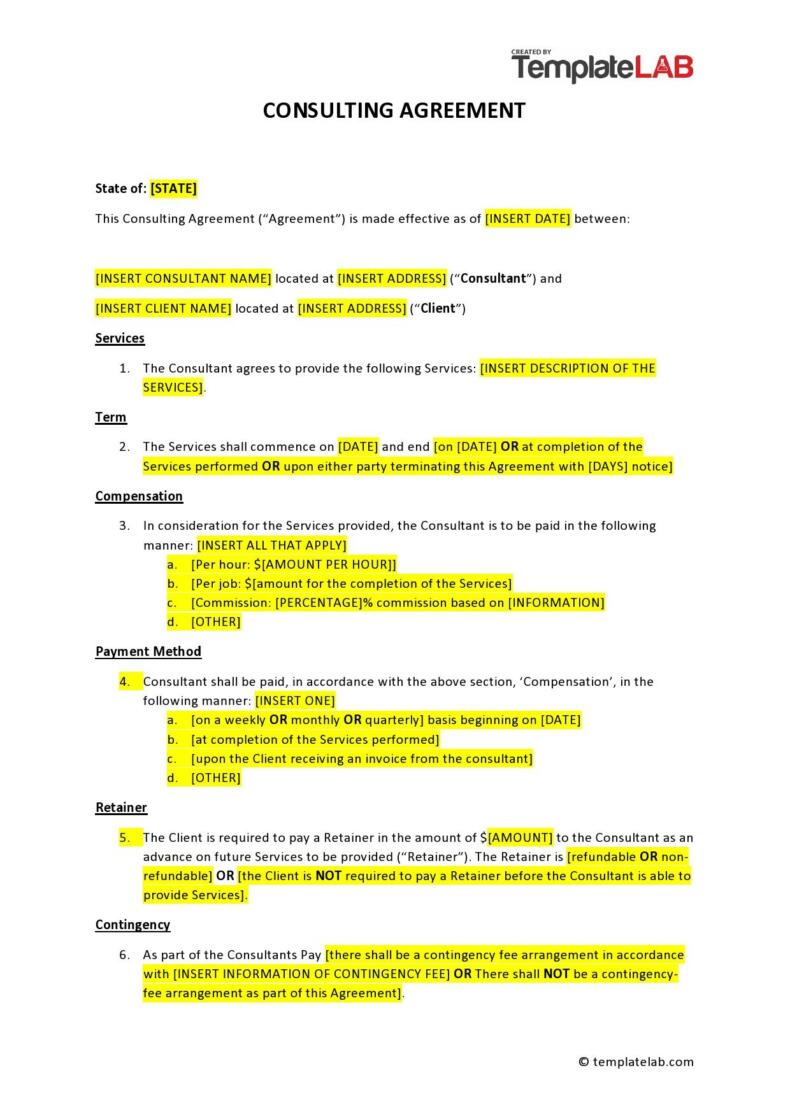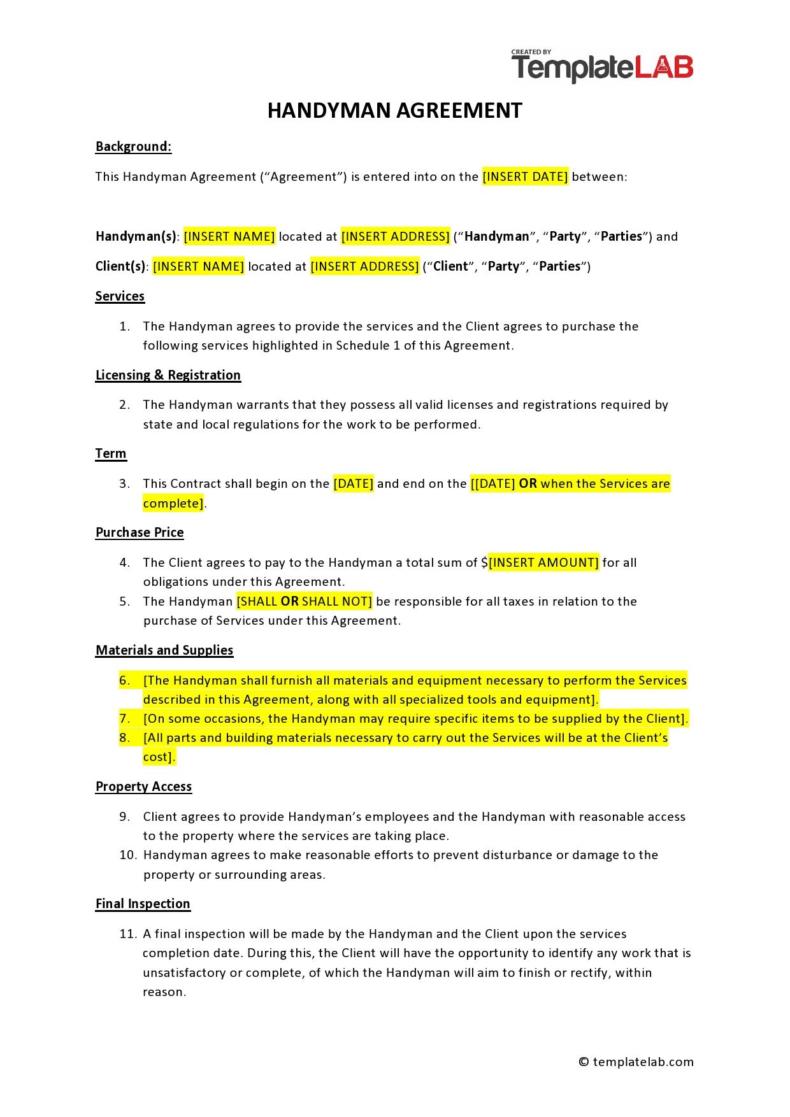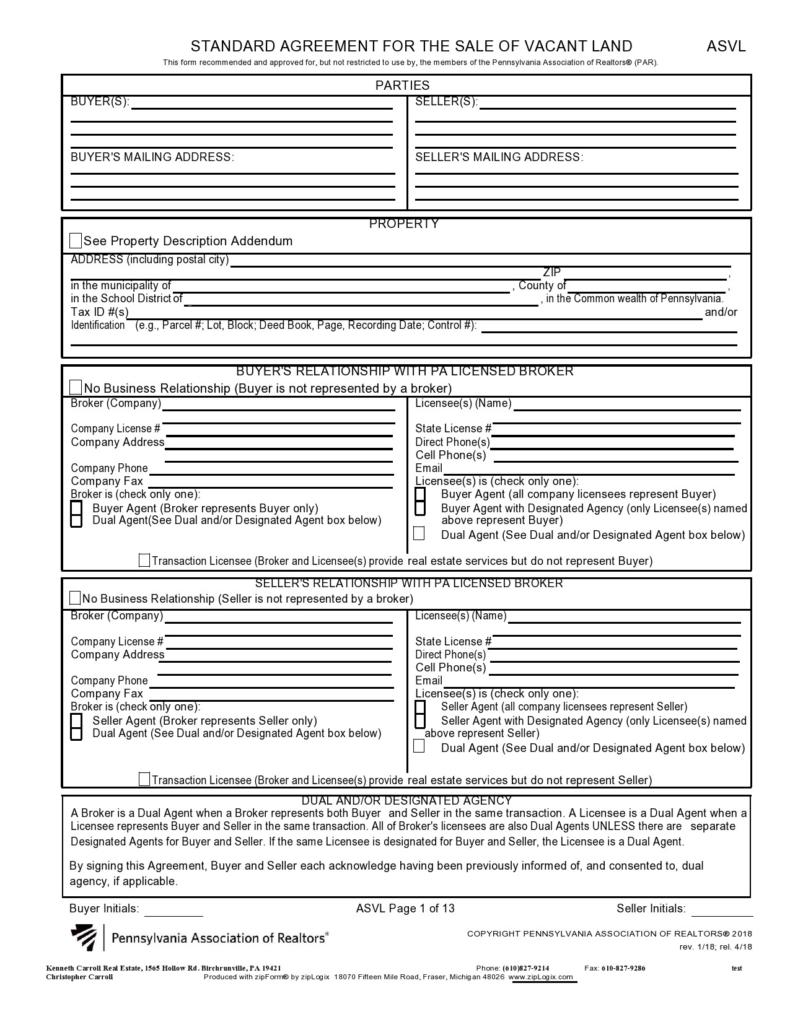Ideally, when two parties enter into an agreement, they both benefit from it, are both pleased with how the agreement turns out, and no disputes occur. However, things aren’t always this easy in the real world. Delays tend to happen, financial issues arise, and other events come up which may prevent or hinder the success of a contract.
Table of Contents
- 1 Breach Of Contracts
- 2 What is a breach of contract?
- 3 Breach Of Contract Letters
- 4 Types of breach of contract
- 5 Breach Of Contract Forms
- 6 When to use a breach of contract notice or document?
- 7 Parts of a breach of contract letter
- 8 Breach Of Agreements
- 9 Proving a breach of contract
- 10 How to remedy a breach of contract?
Breach Of Contracts
What is a breach of contract?
When you enter into a business contract, you have to perform specific obligations which you must fulfill to avoid any legal issues. Legally, if either one of the parties involved in the contract doesn’t follow the terms of the agreement, this becomes a “breach of contract.”
Depending on the terms of the contract, a breach occurs when one of the parties doesn’t fulfill his obligations on time, he doesn’t perform according to the terms of the contract or doesn’t do anything at all. In such a case, the party who made the breach will face legal consequences.
Breach Of Contract Letters
Types of breach of contract
There are different types of breach of contract examples available. No matter what type it is, a breach of agreement or contract occurs when one party fails to fulfill his legal obligations as stated in the document. Here are the main types of contract breaches:
- Anticipatory
This type of breach refers to when one party can say that a breach occurred even before the breach happened. One party can claim an anticipatory breach when he clearly sees that the other party involved in the contract won’t execute his end of the deal within the specified timeframe.
For instance, you hire a consultant and you give him a deadline to finish a project. But on the day before the deadline, the consultant isn’t even halfway through the project or he hasn’t even started yet. In such a case, you can accuse the consultant of this type of breach and sue for monetary damage. - Fundamental
This is the most serious type of breach which allows you to take legal action against the other party for damages. You may also terminate the contract because of the breach. Let’s illustrate this further through another example. For this type of breach, let’s assume that you’ve signed a new lease for your company.
But when you arrive at the location on the moving day, you discover that someone else is still using the venue! In this situation, you can accuse the landlord of a fundamental breach of his lease contract. Then you can sue him for damages and force him to give you the venue under the original contract. - Material
This type of breach refers to a failure of either of the parties involved to perform his duties and it’s also a very serious type of breach. If one party has breached one of the serious clauses in the contract, you can sue him for damages.
For instance, if a contractor performed all of the work on time and the client doesn’t pay, the former can accuse the latter of a material breach of contract. In such cases, contractors must receive their payment after finishing their work but the clients don’t follow through. - Minor
This occurs when one party only performed a partial breach of contract. For instance, you hired one of your friends to create a website for your company. Even though your friend completes the website on time but there are a couple of errors. In such a case, you can’t file a case against your friend for breach of contract but you can force your friend to correct the errors or for any monetary damages.
Breach Of Contract Forms
When to use a breach of contract notice or document?
A breach of contract letter or a breach of contract form informs someone that they’re not following the terms of their contract. There are times when you must explain how the other party isn’t fulfilling his obligations. Some contracts even specify that you must notify the other party of a breach through a breach of contract letter.
A breach of contract form or letter allows you to clarify the situations so all parties go back within the boundaries of their agreement. Use this type of document if:
- You’re in an agreement or contract with a person who isn’t performing one of the terms written in the document.
- Your company deals with agreements and contracts regularly.
No person or entity enters into a contract intending to perform a breach. Sometimes though, no matter how you plan things, a breach of contract still occurs. In such cases, you need to provide notice to the party at fault. Contracts contain terms which both parties must follow.
Giving notification to the other party is an important step to remedy the potential issues caused by a breach of agreement. Even though a notice might not fix everything, it’s a significant step to take, especially in keeping your legal rights protected and in moving forward. When creating a breach of contract letter, make sure to specifically explain how the other party isn’t fulfilling his obligations.
For instance, is the other party not completing his projects on time? Or is the other party not making the required payments or meetings? Whether you plan to terminate the contract or you would like the other party to step up, make sure to draft a notice that’s both accurate and detailed. This will ensure that you’ve got all bases covered.
Parts of a breach of contract letter
Before you take legal action because of a breach of agreement, the first thing you must do is compose a letter about this breach. This type of letter is the “opening act” in several legal proceedings and it contains the details about your claim. It also happens to be a very cost-effective way to deal with conflicts and disputes. When drafting the letter, make sure that it includes the following:
- The details about the breach of contract
You may ask the other party to come up with a solution for the breach within a given timeframe. Typically, you can give a period of 14 days for the other party to remedy the situation. - The interest claims
In some cases, you may have to charge interest on an amount owed to you. If this is part of your claim, include the details about it along with the applicable interest rate given by the Court Service or the interest rate indicated in the agreement. - Comply with the protocol for pre-action
These protocols refer to a set of guidelines about how both parties must act or what they should do first before they take any legal action. Before you issue the letter, make sure that it complies with the pre-action protocols. Otherwise, the courts might impose penalties if it isn’t. - Your claims
You must also lay out the details about the contract you entered into and all of the considerations for entering into it. Then state the details of the breach along with the losses or damages you’ve incurred because of the breach. - Further legal action
Also, emphasize the lack of action on the part of the other party in order to solve the issues caused by the breach. This lack of action resulted in your taking further legal action against the other party.
Breach Of Agreements
Proving a breach of contract
No matter what type of breach of contract example you’re faced with, you must start every legal argument off by establishing the following:
- The existence of the contract;
- The fact that the other party broke the contract;
- The fact that you incurred damages or losses; and
- That the other party was the reason for these damages or losses.
How to remedy a breach of contract?
When one party performs a breach of contract, he must take certain steps to remedy the situation. Otherwise, he may have to face legal consequences. Here are the most common remedies for a breach of contract:
- Damages
The party who broke the contract must pay damages in different forms. There are different types of damages including:
Compensatory damages which place the non-breaching party back in the position before the breach happened.
Punitive damages which are the payments the breaching party should make until he fully compensates the non-breaching party.
Nominal damages which are token damages given to the non-breaching party when there’s no loss of money involved.
Liquidated damages which are those identified within the contract by the parties in the event that one of them breaks the contract. - Specific performance
If the damages aren’t enough as a remedy, the non-breaching party may seek this type of remedy. Specific performance refers to the breaching party’s performance as ordered by the court of duty under the agreement.
If the subject matter of the breach is either unique or rare and damages aren’t enough to remedy the breach, this is the next option. - Restitution and cancellation
Finally, the non-breaching party may cancel or terminate the contract then sue the breaching party for restitution. This type of remedy occurs when the non-breaching party gets placed back in the position he was in before the breach occurred.

